What’s the first name that comes to your mind when you need to find something on the internet?
Obviously, Google!
Google dominates the global search engine market with a whopping 91.19% share. While Google remains the default choice for most internet users, there are several alternative search engines that offer unique benefits and are worth trying.
There are several reasons why people may want to break away from Google’s grip. A recent court ruling revealed that Google maintained its monopoly by paying to be the default option on phones and browsers. Plus, Google’s trustworthiness towards data privacy was put to question multiple times in the past.
Moreover, having a good understanding of different search engines can help SEO experts develop optimization strategies tailored for the audience and select the right tools.
Here is a guide to the Google alternative search engines, their unique features, and what makes them worthy.
Mainstream Google Alternatives
1. Yahoo
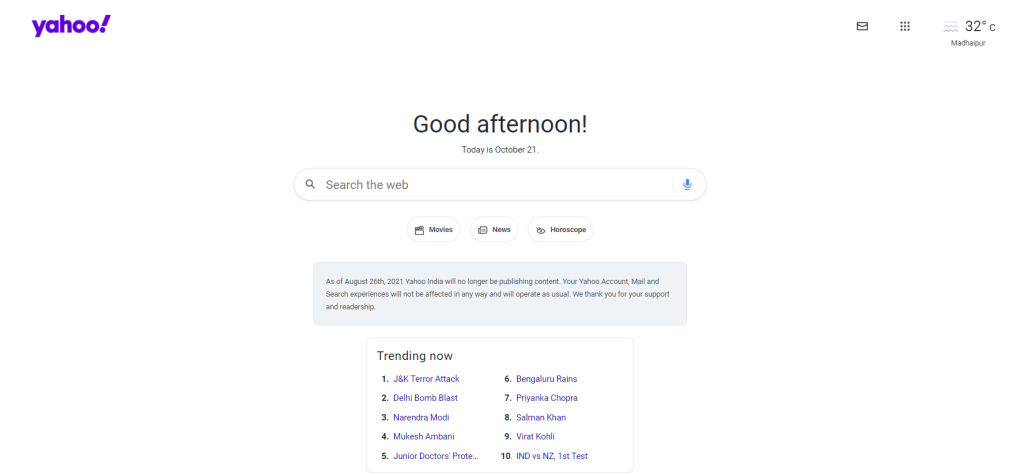
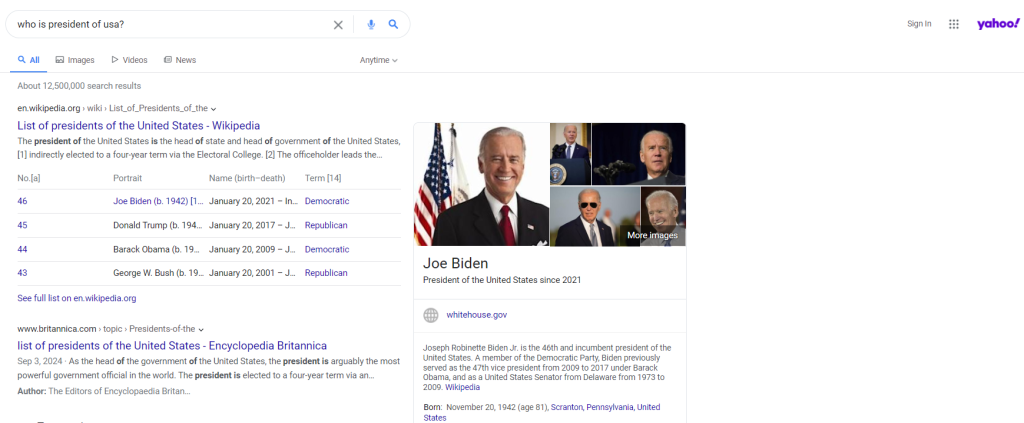
Launched in 1994, Yahoo remains a strong player in the search engine space.
While Yahoo Search is powered by Bing, it offers a unique design and manages a variety of services, making it an all-in-one platform if you are seeking more than just search.
The homepage personalization and clean interface attracts around 700 million monthly Yahoo visitors globally and a 2.56% market share in the US.
Yahoo remains a top choice for users who prefer a comprehensive, no-frills search engine experience.
Yahoo offers an integrated experience beyond search, with secure services like email, news, and finance. However, if you are looking for the latest search technology or enhanced privacy protections, you should try other alternatives.
Why Choose Yahoo as a Google Alternative?
- Offers news, sports, finance, entertainment, and more, all in one place
- Simple, intuitive design with enhanced image and video search
- Provides results tailored to your location
- Quick access to popular topics on the homepage
2. AOL
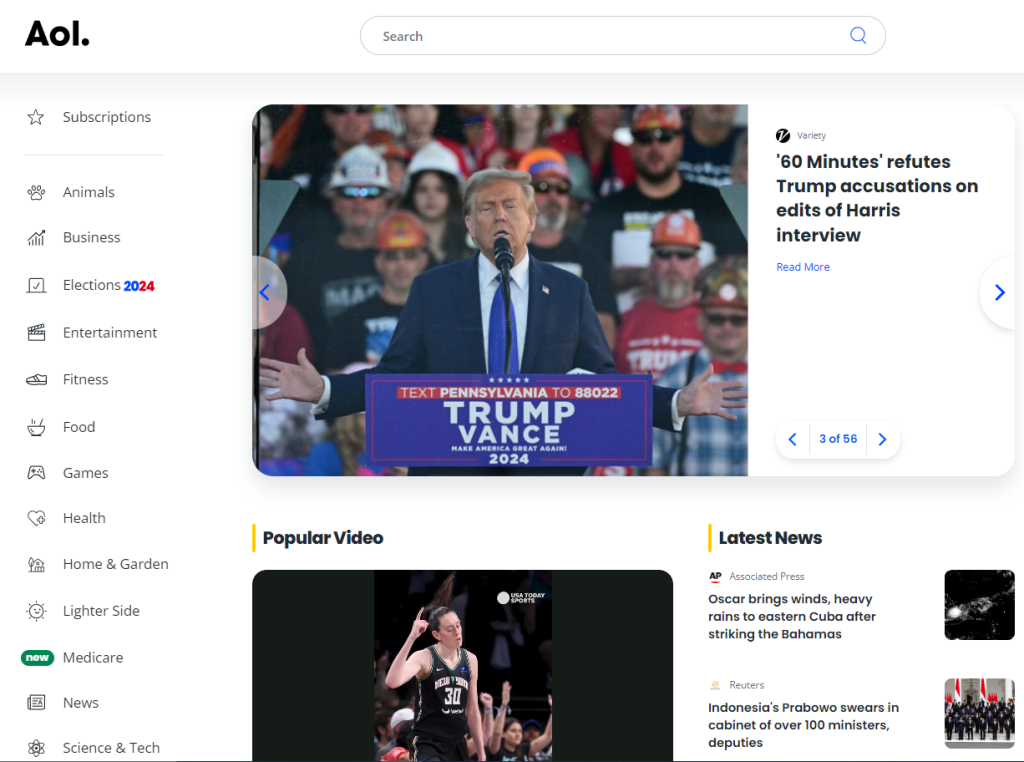
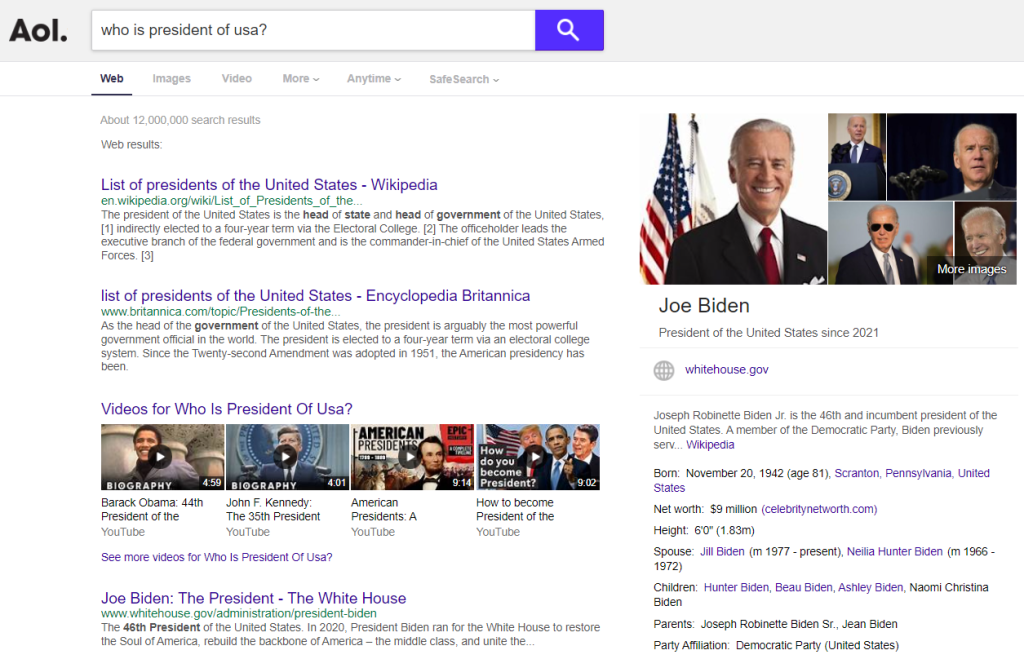
AOL is now owned by Yahoo! Inc., continues to serve as a web portal and search engine. AOL has some interesting features like curated content and SafeSearch filtering. While it’s ad-riddled, the search engine provides related searches for a more interactive experience.
While it holds a smaller market share (0.09%) in the U.S., it remains a well recognized search engine.
Note that AOL relies on Google and Bing partnerships for core search results.
AOL offers a less sophisticated tracking system, focusing on broader demographics rather than individual profiles.
It’s a good choice for users seeking reliable results—especially news and entertainment.
Why Choose AOL as a Google Alternative?
- Access to trending news, entertainment, sports, and more at fingertips
- Filters out offensive content for a family-friendly browsing experience
- Has a clean, simple navigation
Users can manage location and activity tracking via Privacy Dashboard
AI-Driven Google Alternatives
3. Bing
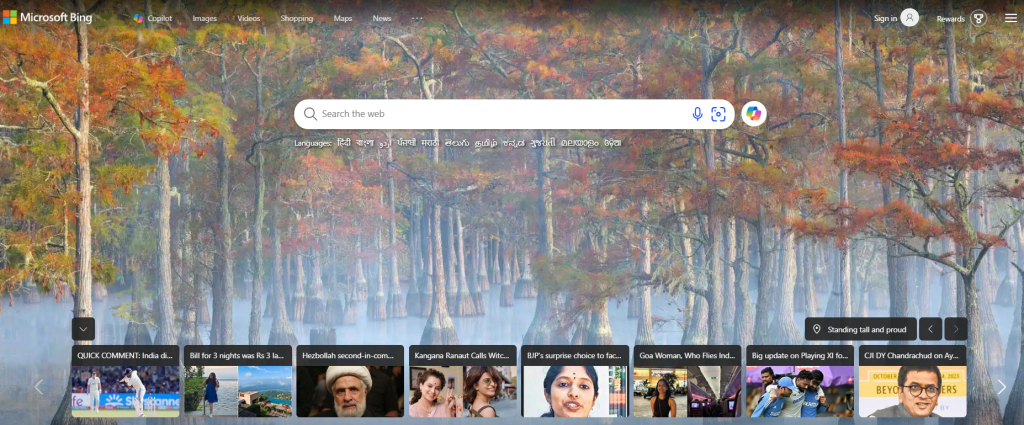
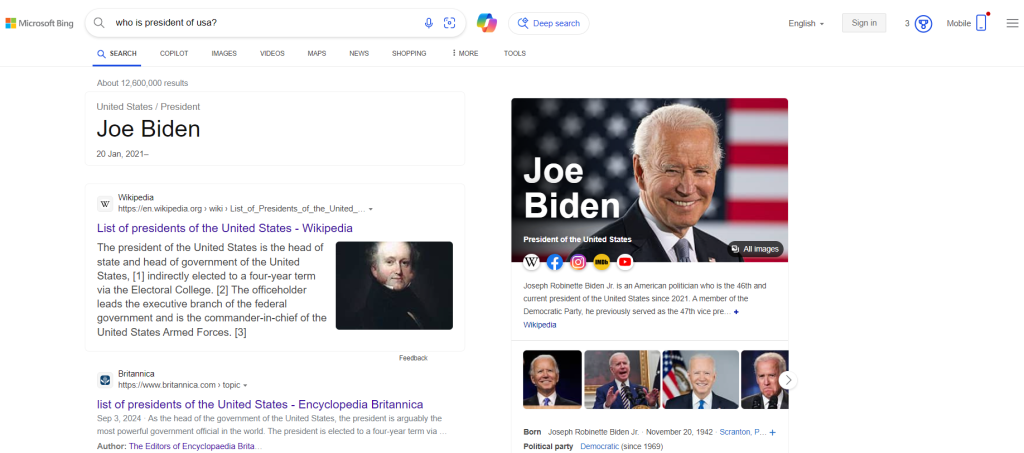
Launched in 2009, Bing continues to evolve with cutting-edge features and established itself as a robust alternative to Google.
Bing is known for its AI-powered search tools and superior image and video search.
With its AI-powered Copilot (powered by ChatGPT), Bing can remember your past queries to refine searches. The AI integration helps deliver accurate summaries and content generation, making it one of the top contenders among Google alternatives.
Bing’s Visual Search excels in image and video search making it a strong competitor to Google’s Lens.
It’s a top choice for users in the Microsoft ecosystem, integrating smoothly with tools like Office and Outlook.
With the inclusion of AI-driven search assistance, it captured 27% of the U.S. search engine market.
Why Choose Bing as a Google Alternative?
- Earn Reward points by using Bing, and redeem with gift cards, games, and donations
- Seamlessly integrates with Microsoft products
- Filters explicit contents
- Hover over video thumbnails for a quick preview
- Personalize your search with filters and settings
4. Perplexity
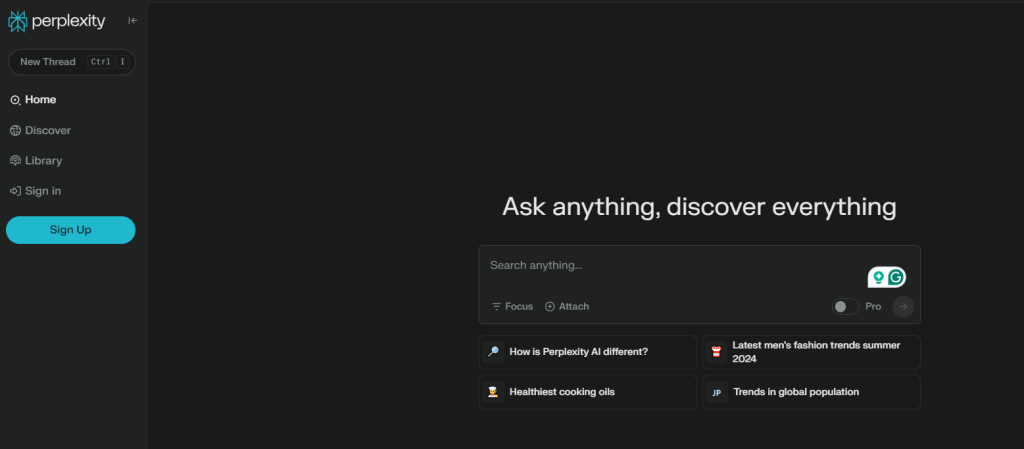
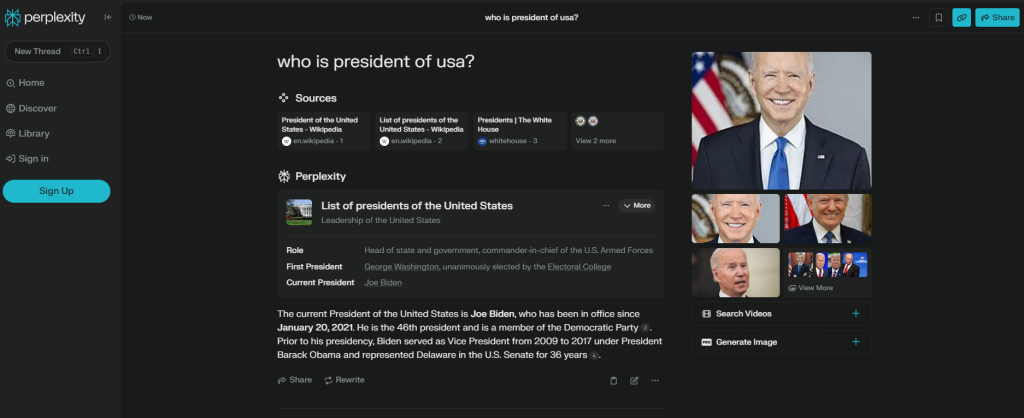
Launched in 2022, Perplexity is an AI-driven search engine that delivers contextual, conversational answers instead of simply listing web pages.
It stands out among search engines by providing cited sources for accuracy and allows follow-up questions for a more interactive experience.
Perplexity’s AI-powered approach, combined with features like file querying and historical search storage, makes it ideal for users in need of personalized, precise answers.
The paid versions are available and offer additional tools like image generation and Copilot for advanced queries.
With 15 million users as of July 2024, Perplexity is quickly gaining popularity as a dynamic, AI-powered alternative to Google.
Why Choose Perplexity as a Google Alternative?
- Answers include source links
- Follow-up questions refine search results
- Upload images, PDFs, and other content for Perplexity to explain, translate, or condense
5. You.com
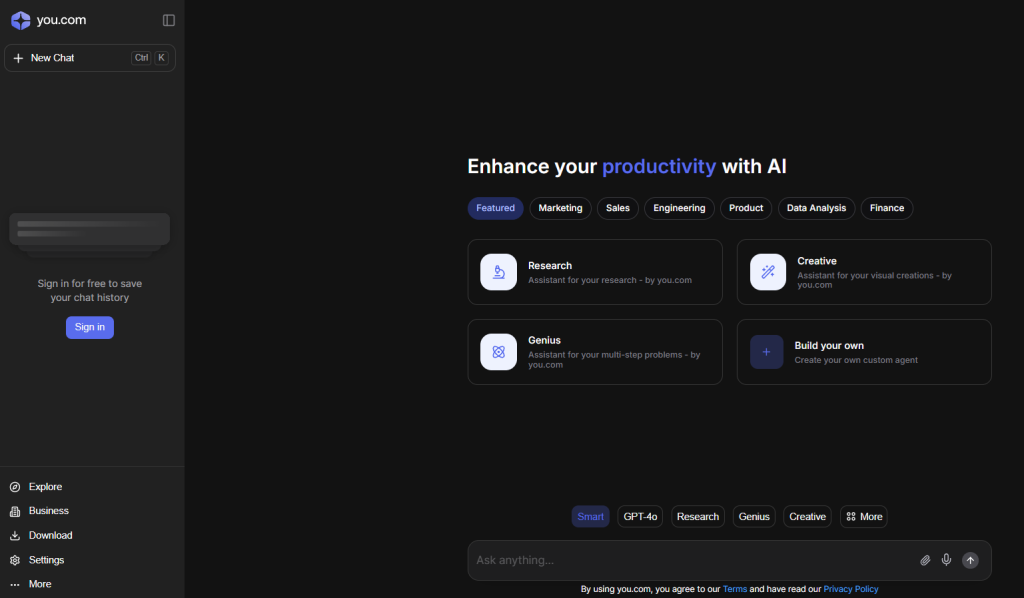
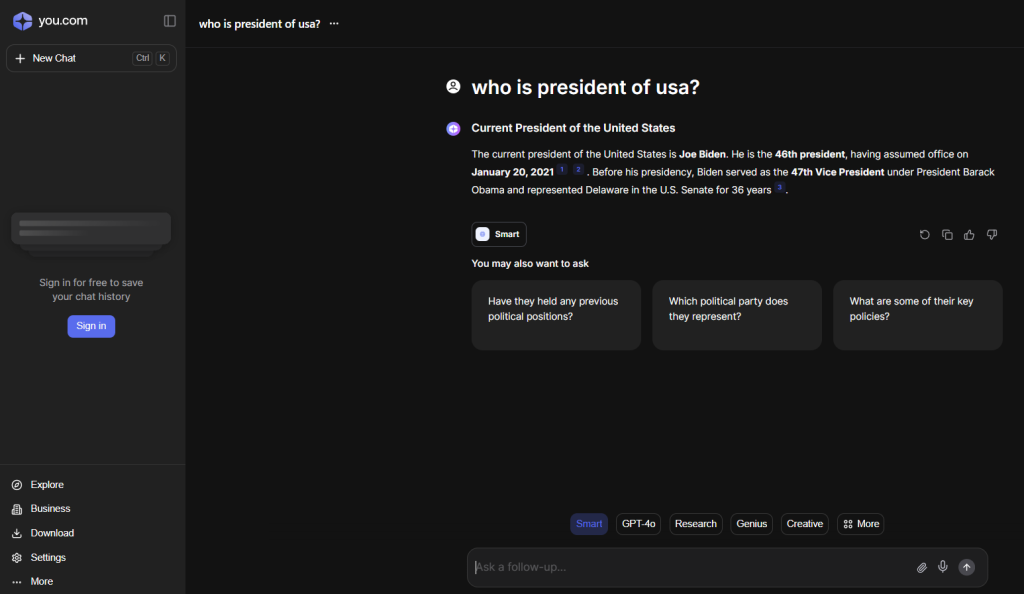
Founded by Richard Socher, You.com is a highly customizable, AI-driven search engine with 11 million users as of May 2024.
You.com offers advanced customization and a flexible search experience where you can define preferred sources and integrate AI tools like YouWrite for content writing.
In our opinion, You.com is perfect for users who want more control over their search experience with privacy.
The Pro version offers unlimited queries.
Why Choose You.com as a Google Alternative?
- Provides AI-generated summaries
- Choose between personalized searches based on preferences or completely private searches with no data collection
- Encourages collaboration, allowing developers to build apps
- Dedicated category for searching platforms like Twitter and Reddit
- Ensures privacy by not using trackers or selling user data
6. Komo
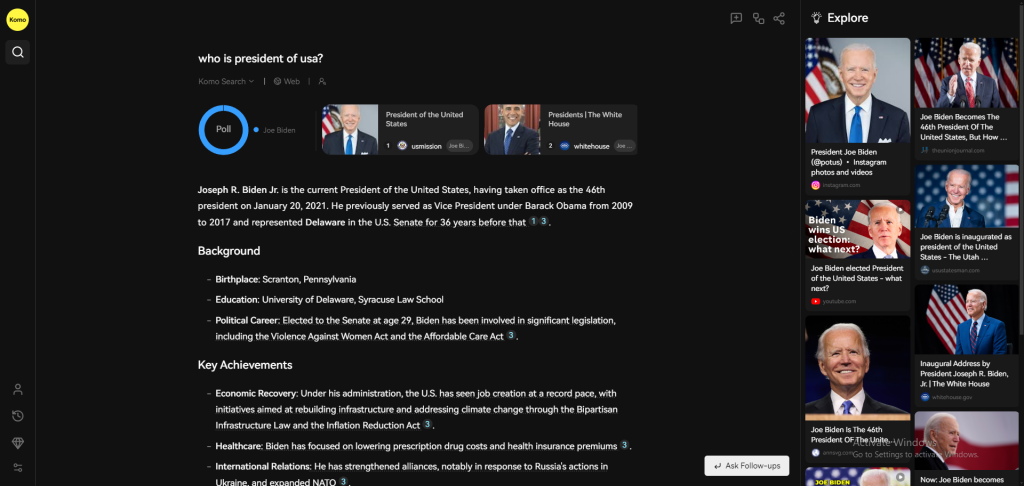
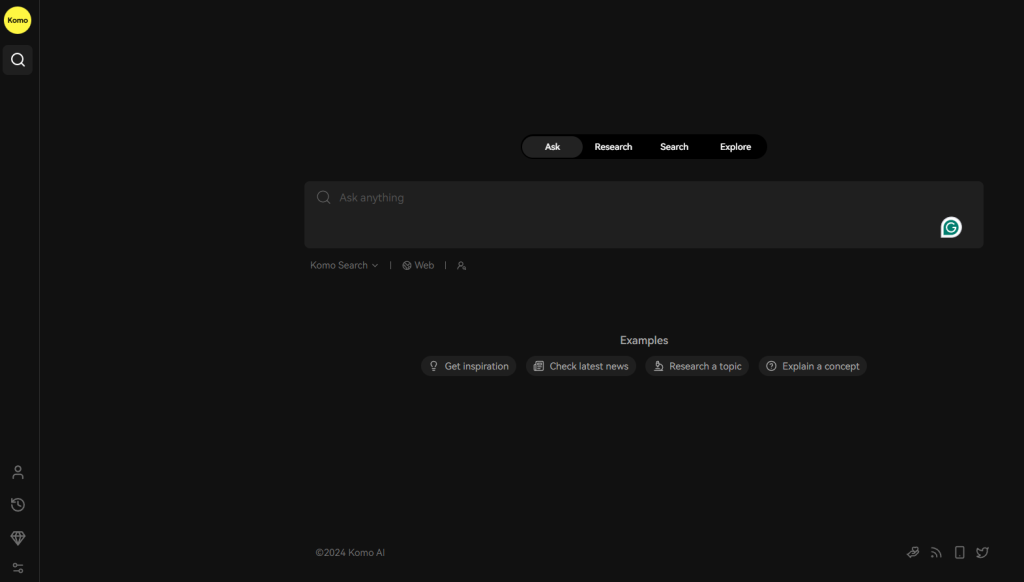
Komo is a newer AI-powered search engine that uses natural language processing (NLP) to curate relevant, detailed responses. The search interface is chat conversation-like, similar to ChatGPT and perplexity.
With Komo, you can easily select the search category such as web, academic, news, news and more. One cool thing is that you can select from different AI models, integrated within the platform, to answer your search query.
Komo provides an ad-free, AI-powered search experience with a focus on credibility and depth. It’s an excellent choice for users who require detailed, citation-backed answers, especially for academic, business, and law fields.
Why Choose Komo as a Google Alternative?
- Ad-free experience
- Delivers accurate, detailed answers, backed by citations
- Users can fine-tune search parameters
7. SearchGPT (Coming Soon)
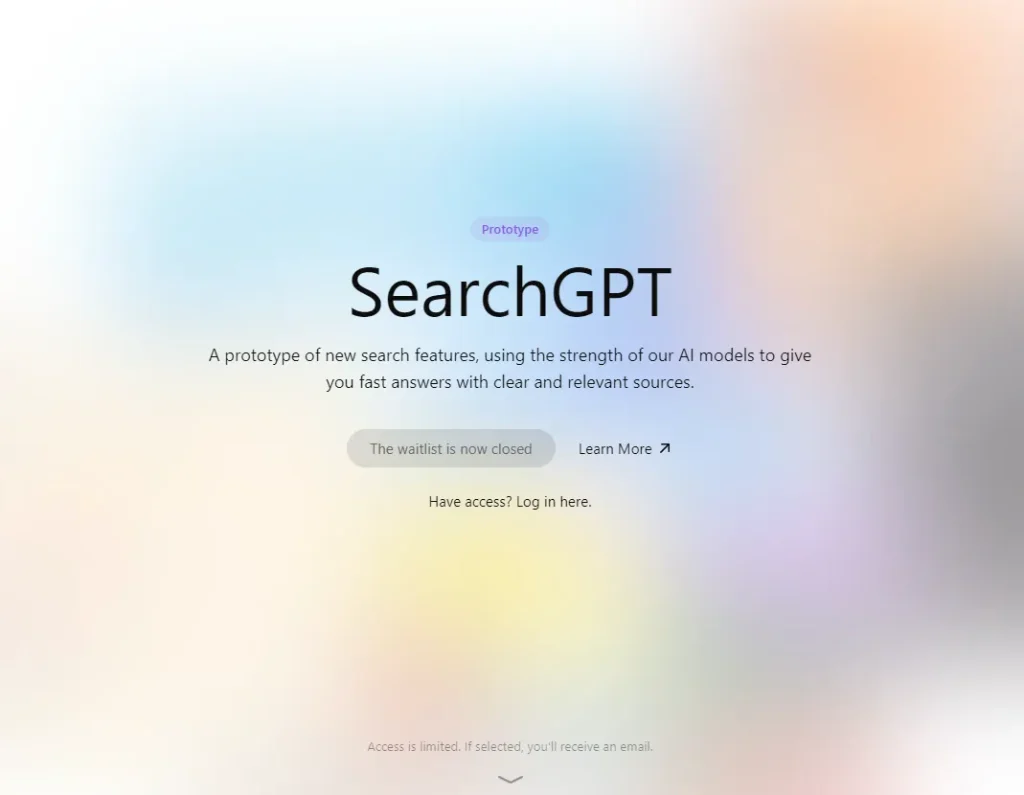
SearchGPT is a prototype developed by OpenAI, and promises to bring an exciting AI-driven search engine. It’s currently available to a limited group of early users.
What We Know About SearchGPT
- Pulls up-to-date data from the web
- Allows users to refine their queries with follow-up questions
- Provides citations with its answers
- Delivers visually rich results
- Offers publishers control over how their content appears in search results
Privacy-Driven Google Alternatives
8. DuckDuckGo
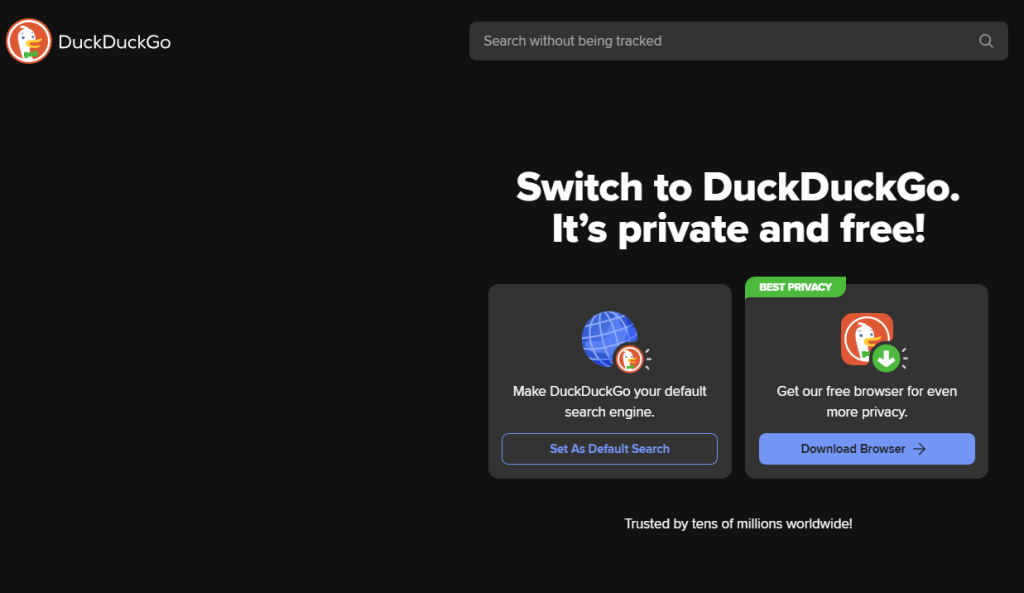
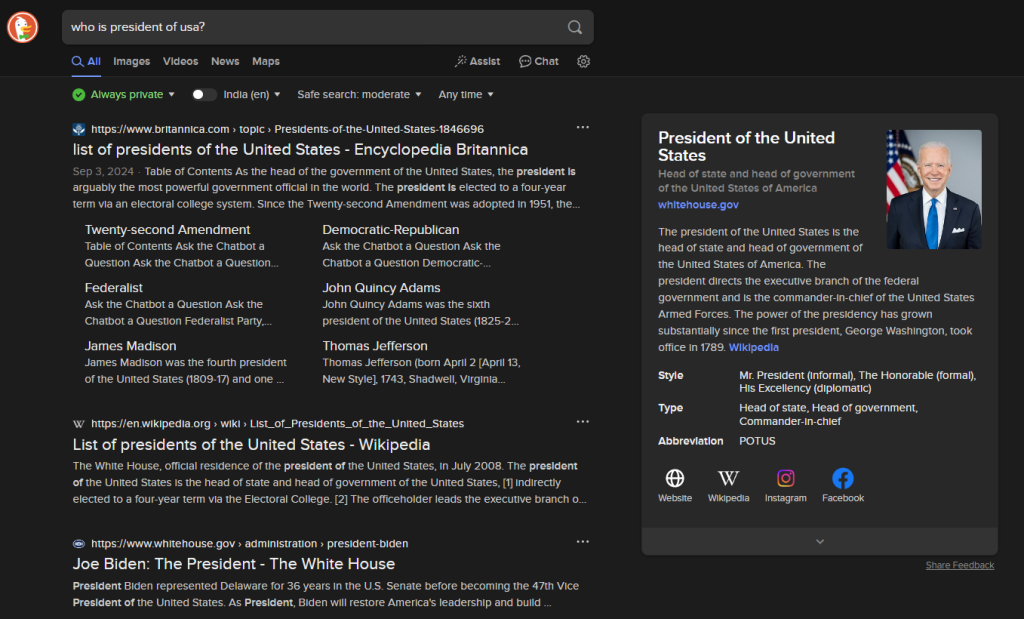
DuckDuckGo is one of the most notable search engines out there for prioritizing privacy.
Unlike Google, DuckDuckGo doesn’t track searches or collect personal data, offering users full control over their online activities. This privacy-first approach means you won’t be served targeted ads or browsing habits won’t be tracked.
As of December 2023, DuckDuckGo held a 2.13% U.S. market share.
Why Choose DuckDuckGo as a Google Alternative?
- DuckDuckGo doesn’t log IP addresses
- Its clean and clutter-free design makes searching easy
- Type “!” followed by a site name to directly access search results on specific platforms (e.g., “!toyota cars”).
- DuckDuckGo blocks external trackers and offers a Tor .onion version for complete anonymity
- Provides quick responses to queries from over 100 trusted sources
- DuckDuckGo Lite offers private, mobile browsing
9. Brave
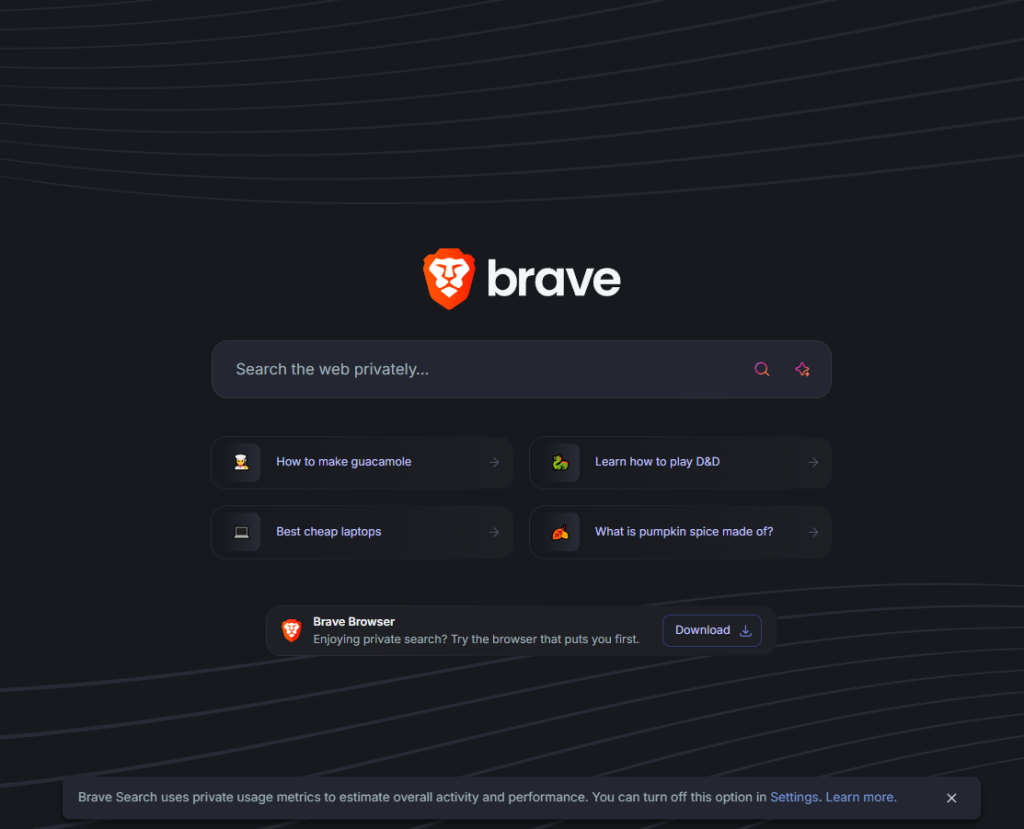
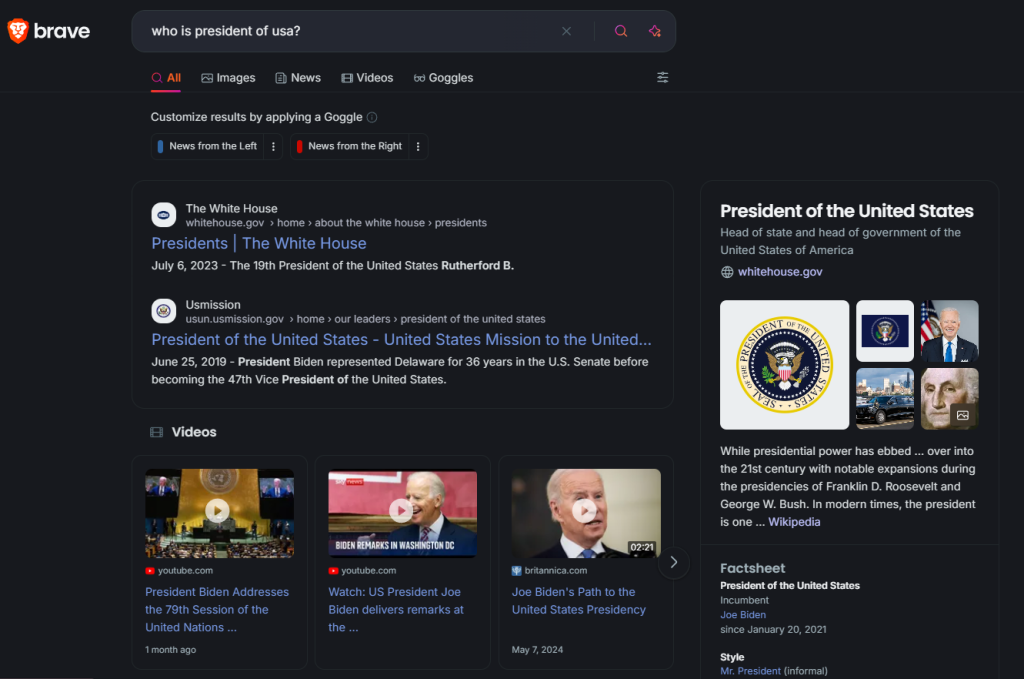
Brave is quickly becoming a top alternative to Google, offering a privacy-first, unbiased search experience, without tracking or profiling users.
Brave Search operates on its own independent search index, with almost 30 million daily active users.
Similar to Google and Bing, Brave offers the “Answer With AI” option, which provides AI-powered summaries alongside reliable citations.
Unlike other search engines that rely on third-party data, Brave’s fully independent index search results are free from external manipulation.
Since going fully independent in 2023, Brave has become one of the fastest-growing privacy-focused search engines, with over 24 million daily users.
Why Choose Brave as a Google Alternative?
- Brave doesn’t track search history
- Earn Brave Rewards or Brave Attention Tokens (BAT) by viewing privacy-preserving ads, which can be redeemed for gift cards or converted into other currencies
- Doesn’t filter or manipulate search results based on user data
- Integrated with the Brave Browser, it offers features like free video calls and customizable news feeds
- The Goggles feature lets you set filters and prioritize specific types of content
- Tor integration and IPFS ensure enhanced privacy and security
- Get real-time AI-generated answers with citations
10. Startpage
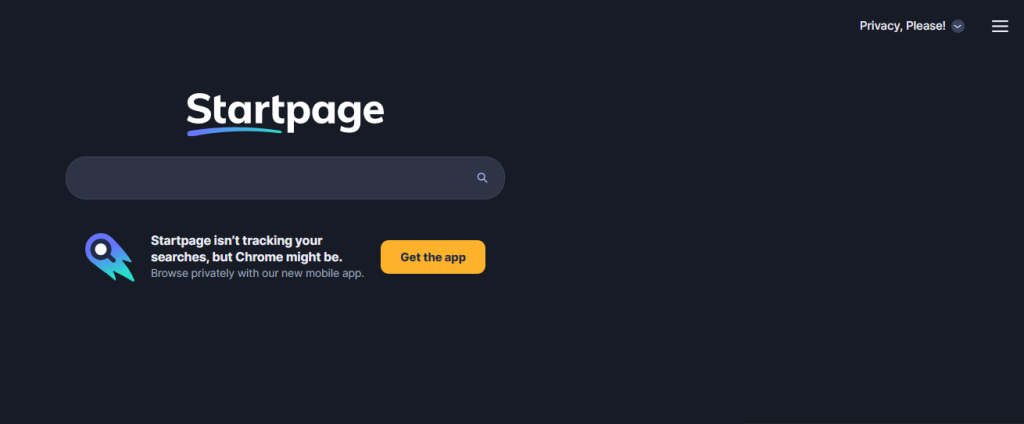
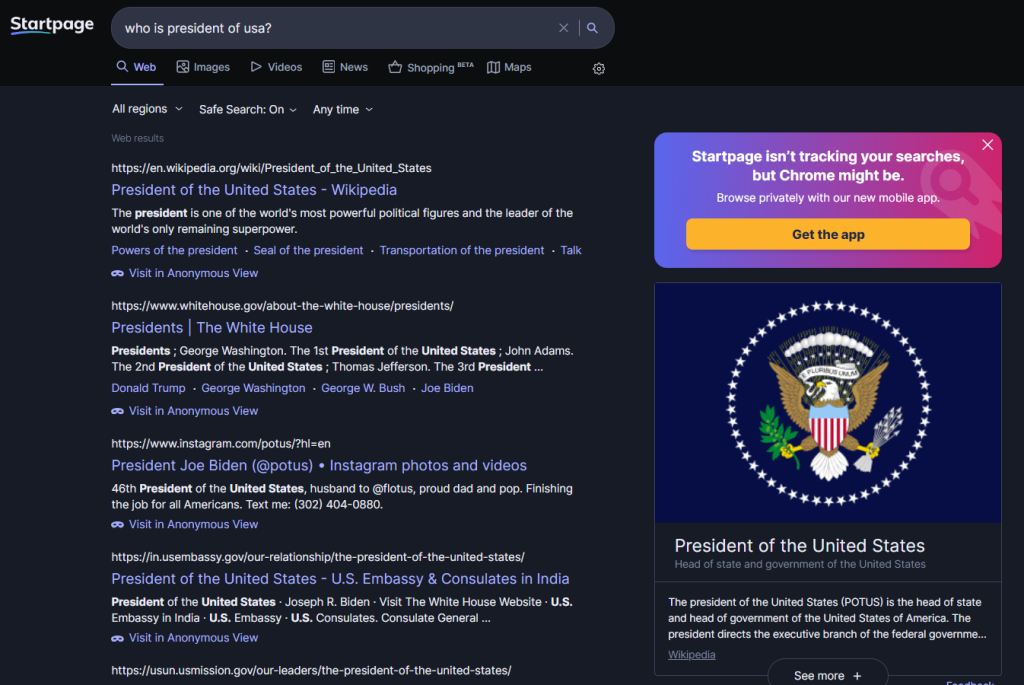
Founded in 2006 in the Netherlands, Startpage is a privacy-focused search engine that aggregates results from Google without sharing your data. This means you get to enjoy Google’s search capabilities with better privacy protections.
Startpage anonymizes your search by removing IP addresses and identifying information before fetching results from Google. It doesn’t store your search history or track your behavior, ensuring complete privacy.
Why Choose Startpage as a Google Alternative?
- No retargeting; ads are based solely on your search terms
- Convenient tools to use Google’s browser while keeping searches private
- Browse websites anonymously without revealing personal data
- Based in the Netherlands, Startpage follows strict EU privacy laws
11. Gibiru

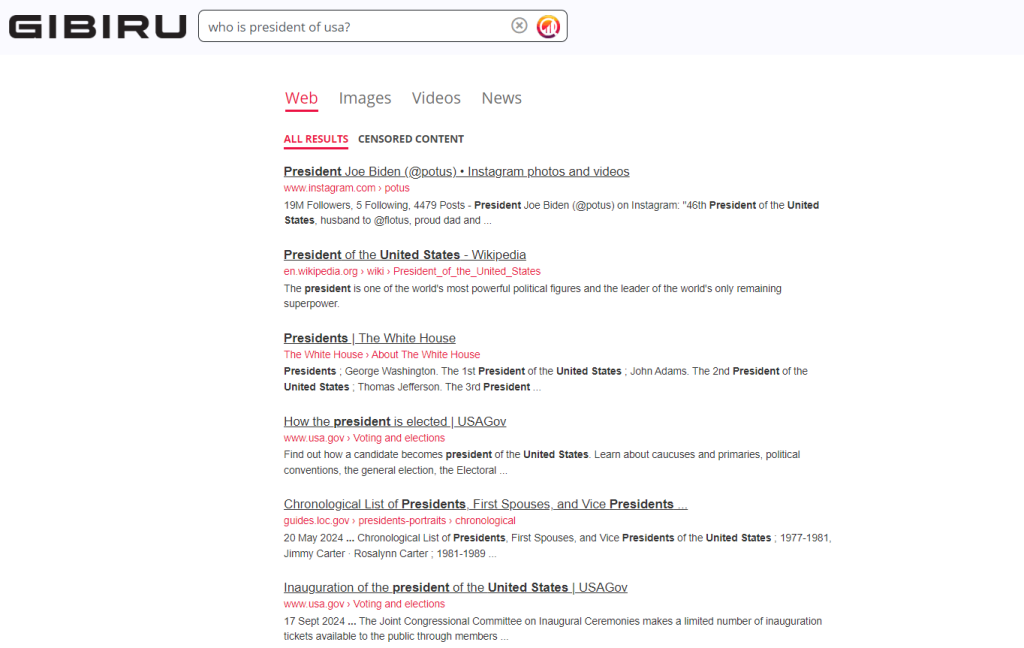
Founded in 2009 by the hacker community, Gibiru is a powerful alternative to Google for users who prioritize privacy and freedom of information.
Gibiru does not track IP addresses, log searches, or use cookies, making it an excellent choice for those who want their online activity to remain private.
If you are wondering how they make money, the revenue comes through commissions on user actions, such as purchases made through its search results.
Why Choose Gibiru as a Google Alternative?
- Gibiru ensures complete anonymity by not tracking user data or IP addresses
- Users can toggle between “All Results” and “Uncensored” to control the type of content they see
- Gibiru recommends its VPN for enhanced anonymity
- offers a free proxy service and a mobile browser called Wormhole
12. Qwant

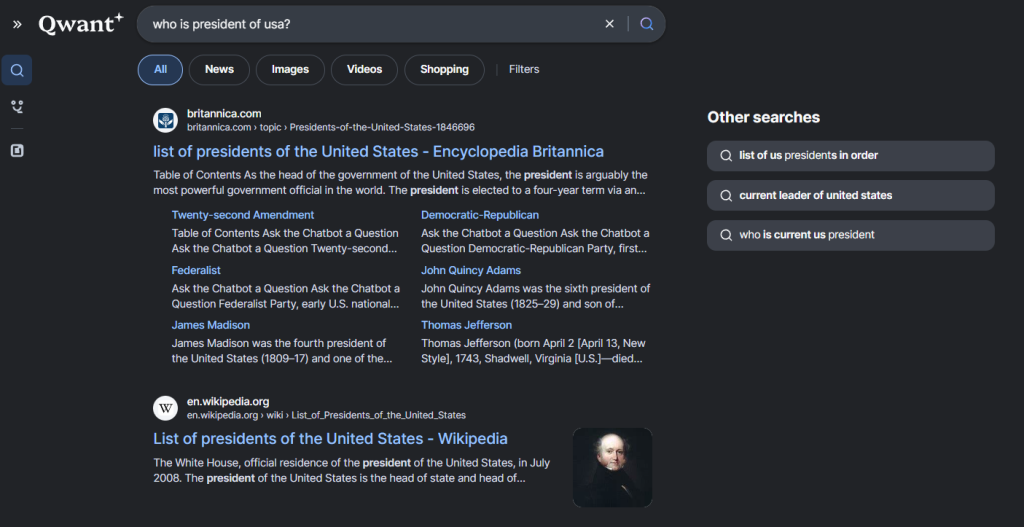
Founded in Paris in 2013, Qwant is a privacy-focused search engine that has gained traction for its commitment to protecting user data.
As the default search engine for the French National Assembly, Qwant uses its own indexing technology, ensuring independence from Google while delivering encrypted search queries.
Though it partners with Microsoft for ads, Qwant remains a strong privacy-centered alternative.
With around 21 million monthly users across 30 countries, Qwant is a top choice for those who want a Google alternative that prioritizes privacy and offers family-friendly options.
Note that Qwant is not available in all countries outside the EU.
Why Choose Qwant as a Google Alternative?
- All queries are encrypted, preventing third parties from tracking your activity
- Choose between Qwant Search, Qwant Maps, and Qwant Junior (for kids) for tailored browsing experiences
- Qwant guarantees unbiased search results that aren’t influenced by past searches or user profiles
- Users with Qwant accounts receive AI-generated summaries .
- Qwant meets the European Privacy Standards
13. Openverse


If you’re looking for copyright-free media contents, Openverse should be your first stop.
Focused on open-source media, Openverse offers a vast collection of images, audio, videos, and more, all free from copyright restrictions.
Unlike broader search engines, Openverse is designed specifically for finding open-source content, ensuring you won’t accidentally use copyrighted materials. This makes it a top resource for creators who need content for projects without worrying about legal issues.
Why Choose Openverse as a Google Alternative?
- From images to music and videos, Openverse provides a wide range of copyright-free media
- All content is either public domain or licensed under Creative Commons, eliminating copyright infringement
- Efficiently filter your search by media type
14. Presearch

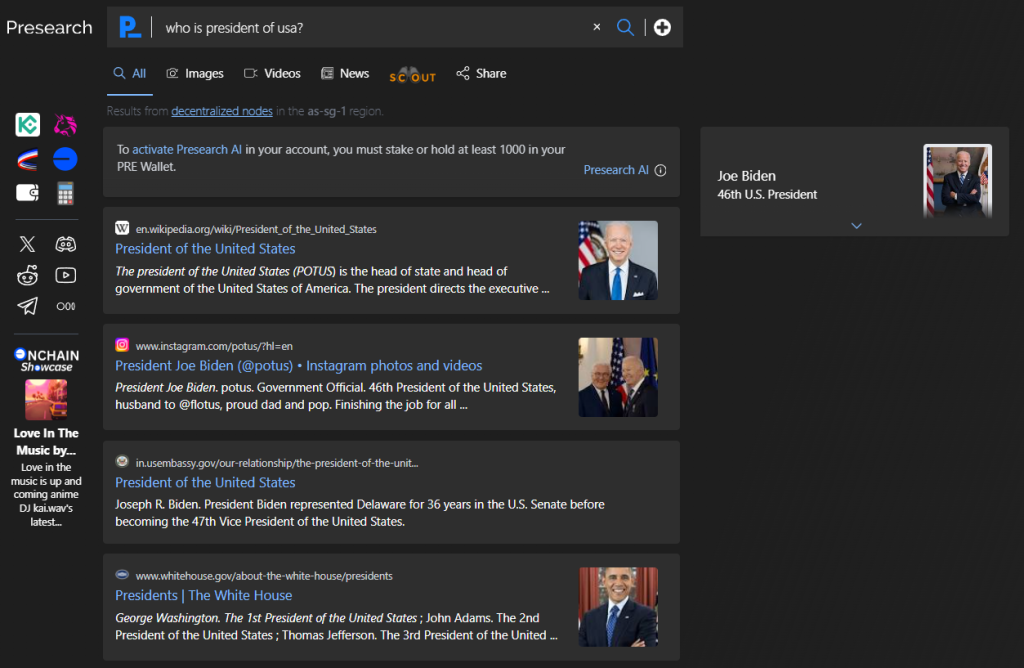
Presearch stands out among other search engines as a community-powered, decentralized search engine that prioritizes privacy and user control.
Powered by blockchain technology, it ensures that no single entity can track or store user data, offering a unique and secure search experience.
Presearch also allows users to customize their search experience by choosing from a variety of search provider buttons like Google, Bing, and DuckDuckGo.
Why Choose Presearch as a Google Alternative?
- Searches are anonymized across a network of community-operated servers
- Presearch uses blockchain to distribute data across multiple nodes
- Earn PRE tokens for searches, which can be used for advertising within the Presearch ecosystem
Environment-Friendly and Charitable Alternatives
15. Ecosia

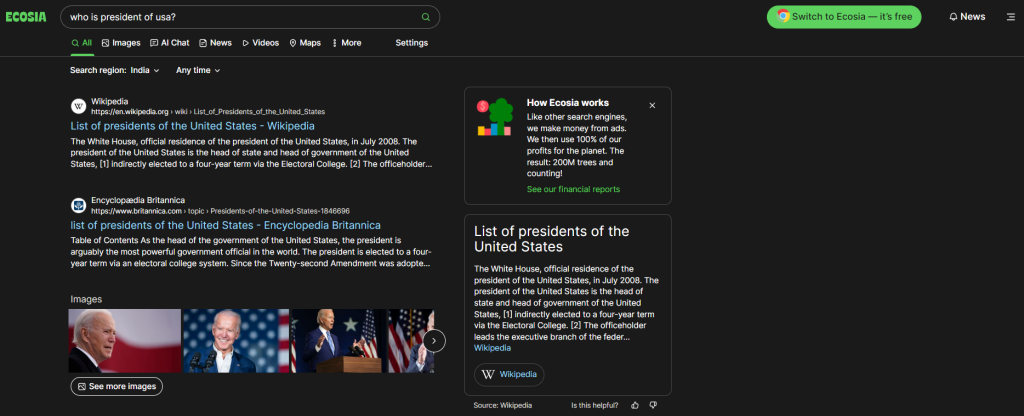
Ecosia is a Berlin-based search engine that gained fame for its eco-conscious campaign.
Unlike traditional search engines, Ecosia uses its profits to plant trees in deforested areas. Powered by Bing’s search index, Ecosia ensures that every search helps the environment. As of September 2024, Ecosia partnered with local environmental organizations to plant nearly 200 million trees.
It anonymizes user data, uses solar energy, and plants a tree for approximately every 45 searches.
You can check their transparent financial reports, showing exactly how its profits are used to support reforestation.
If you want to contribute to environmental causes through your daily web searches, Ecosia is the perfect choice.
Why Choose Ecosia as a Google Alternative?
- Tracks how many trees are planted based on your searches
- anonymizes all searches within a week
- The search engine runs on 100% renewable energy from its solar farms
- Highlights eco-friendly companies and flags climate-destructive entities in search results
- Directly contributes to reforestation, with a goal of planting one billion trees by 2024
16. OceanHero
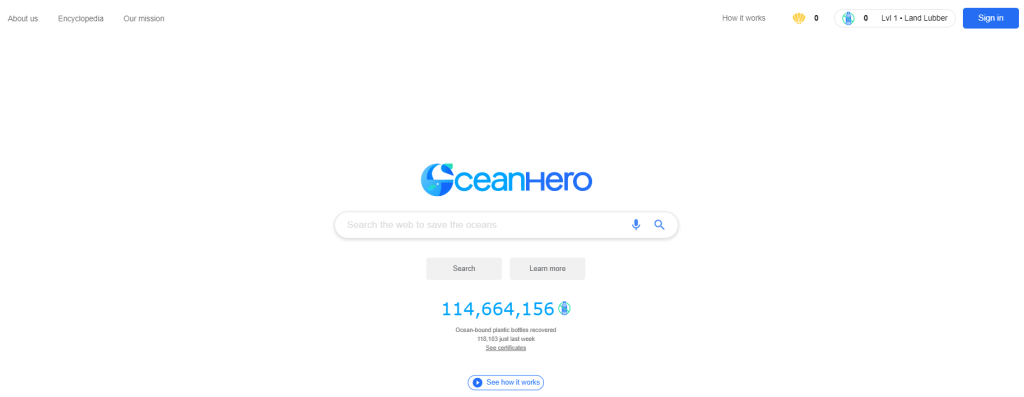
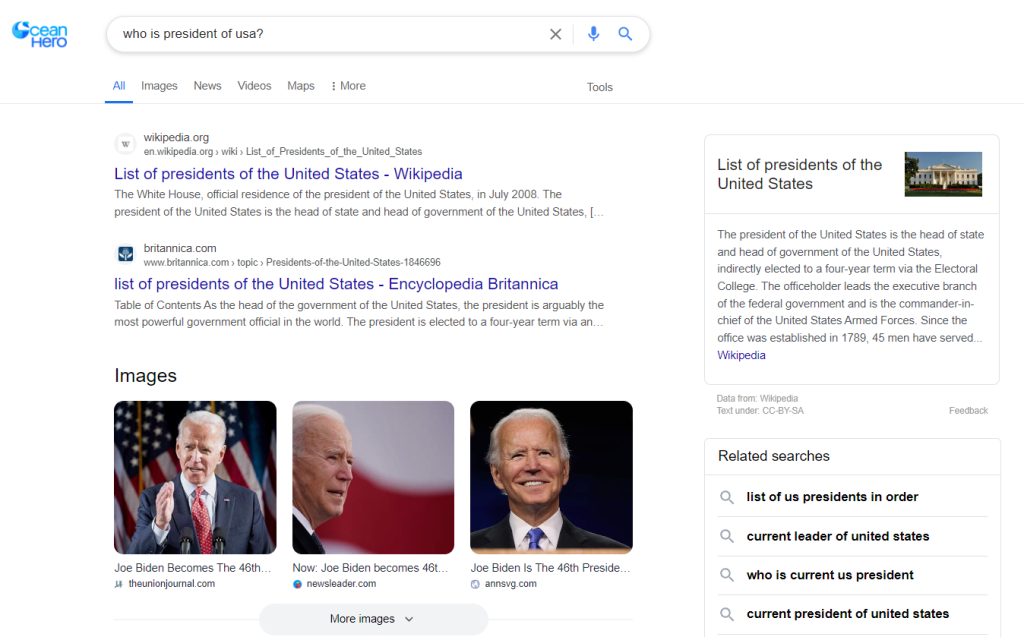
OceanHero is a unique search platform where you can contribute to plastic waste recovery with every search.
Dedicated to cleaning oceans and rivers, OceanHero partners with NGOs to fund ocean cleanup efforts and raise awareness about plastic pollution.
Why Choose OceanHero as a Google Alternative?
- Every five searches help recover the equivalent of one plastic bottle from the ocean
- Collaborates with specialized NGOs to ensure impactful cleanup efforts
- Actively educates users on reducing plastic consumption and the dangers of oceanic pollution
17. giveWater

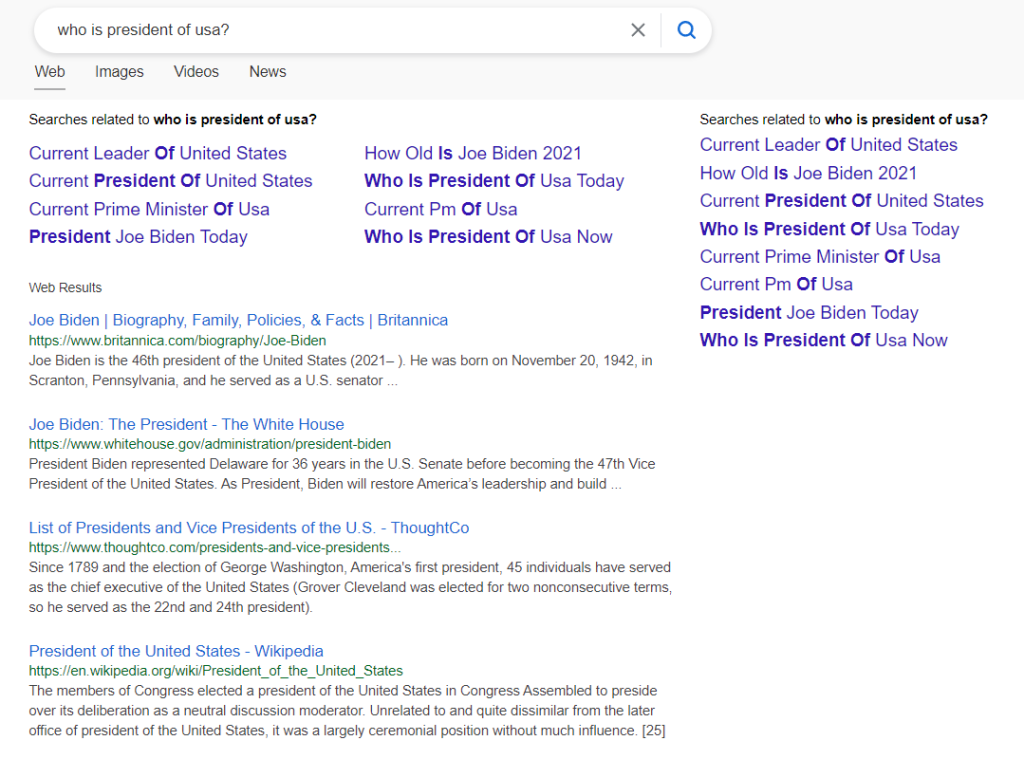
Similar to Ecosia’s tree-planting mission, giveWater uses its ad revenue to fund clean water initiatives around the world. By using giveWater, you can make a positive impact simply by searching and clicking on relevant ads.
Why Choose giveWater as a Google Alternative?
- Every search contributes to funding clean water initiatives where communities lack access to safe drinking water
- giveWater helps address the global water crisis
- The platform is available as a browser extension
- Each search and ad click helps fund critical clean water projects
18. Seva
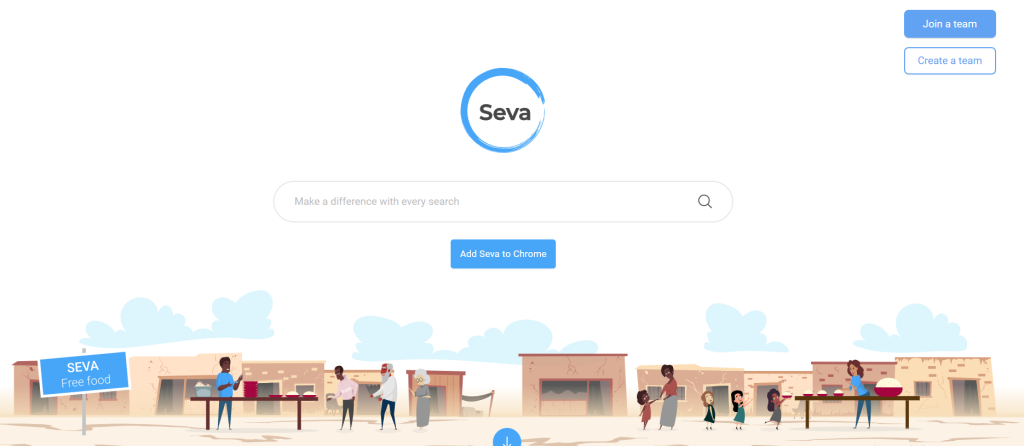
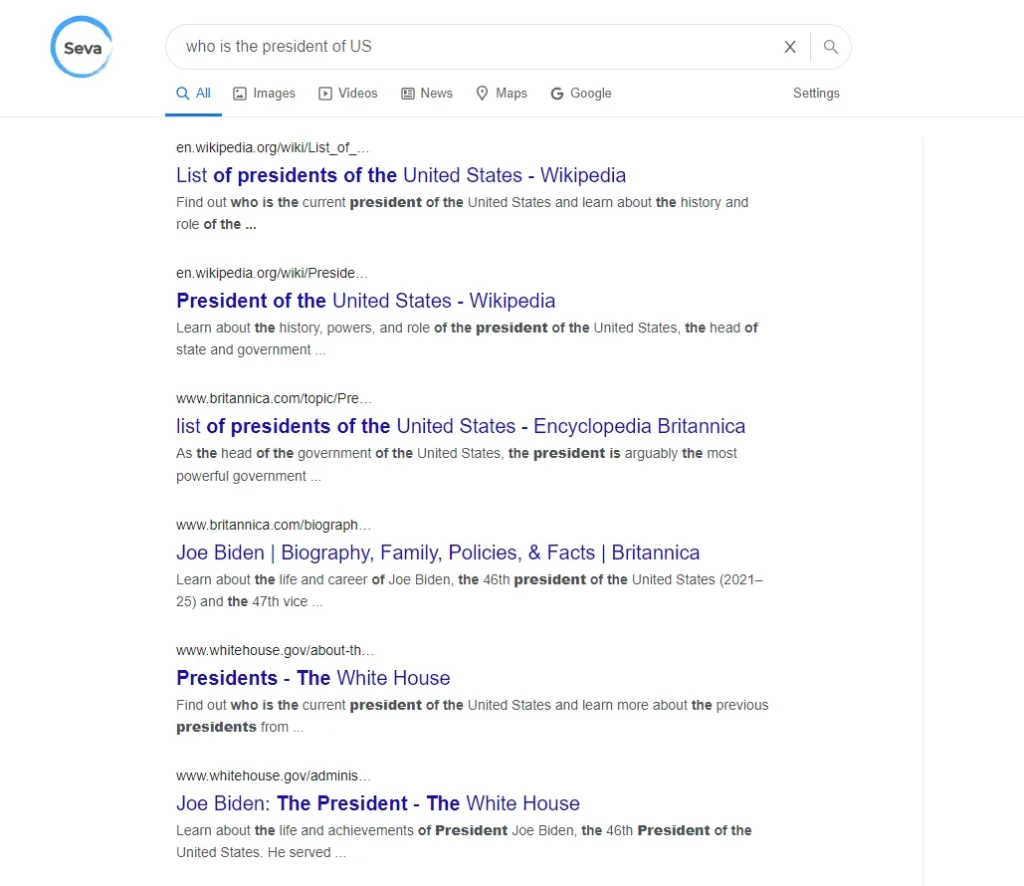
Derived from the Sanskrit word for “selfless service.”
Seva turns everyday searches into charity donations, similar to Ecosia. It allows you to contribute to team-based fundraising, adding an extra layer of engagement.
Why Choose Seva as a Google Alternative?
- Users can create or join teams to raise funds collectively
- Supports various causes, including the Best Friends Animal Society, Eden Reforestation Project, St. Jude’s, and the World Food Program
- Seva doesn’t track or store search queries
19. Ekoru
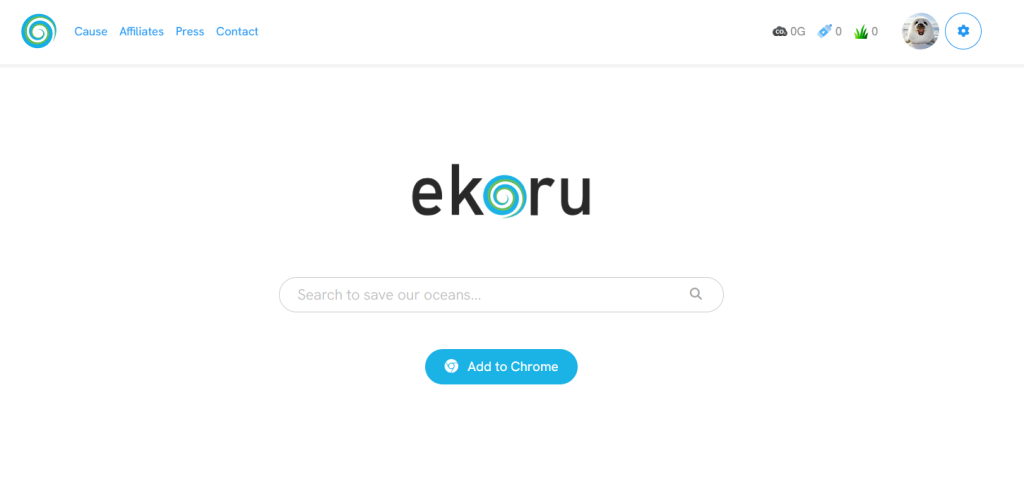
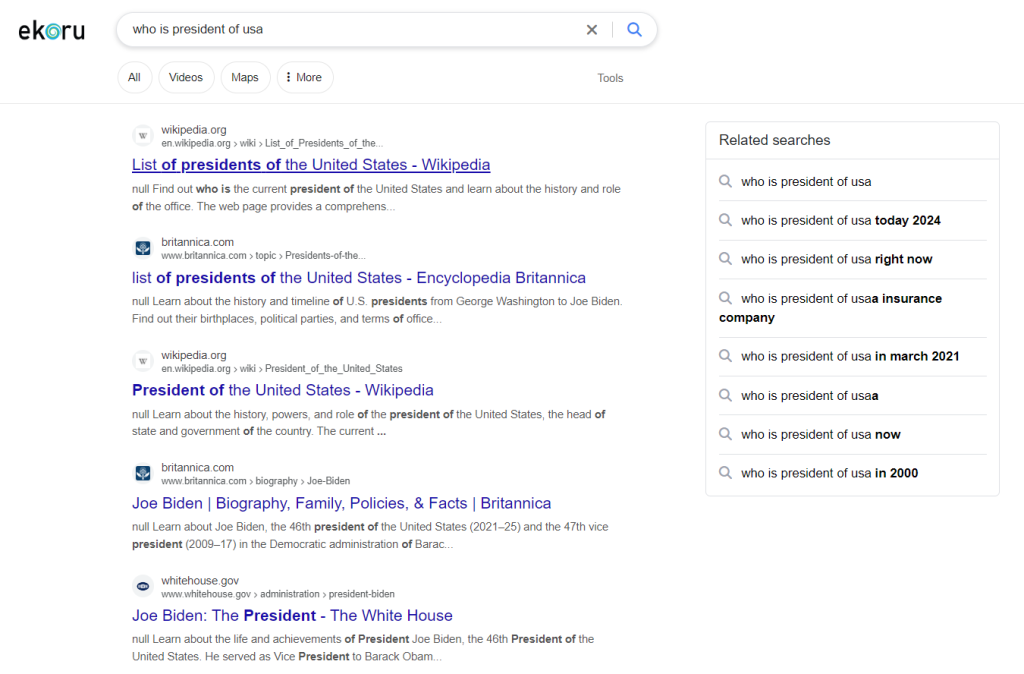
Another environment-conscious search engine that partners with nonprofits to remove plastic waste from oceans and plant seagrass.
Why Choose Ekoru as a Google Alternative?
- Every search contributes to efforts to remove ocean plastic and protect marine habitats
- Ekoru runs on sustainable, water-powered electricity, reducing its carbon footprint
- Ekoru encrypts your searches and does not sell data
20. Goodsearch
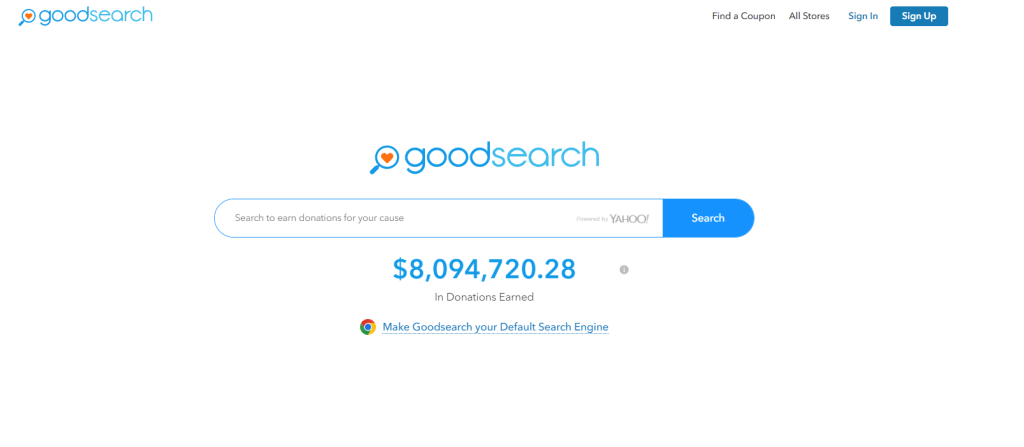
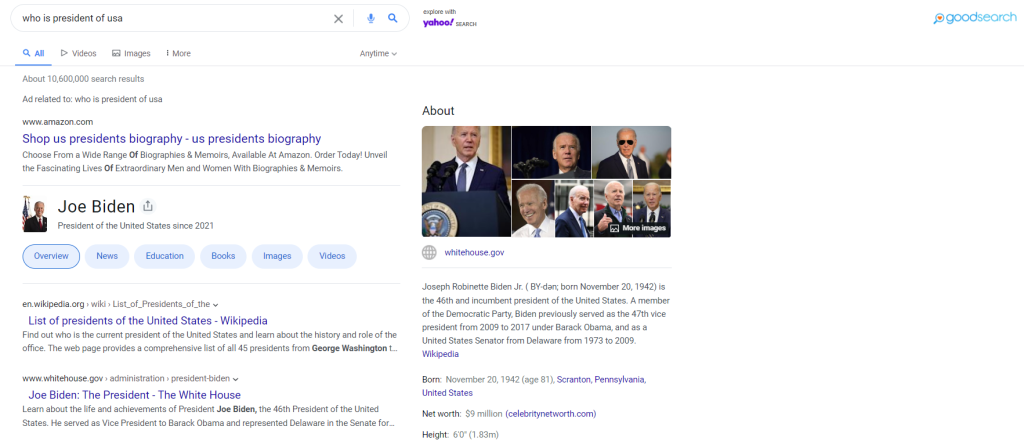
Goodsearch is a charitable search engine that lets users donate a portion of ad revenue to a nonprofit of their choice. Powered by Yahoo, it provides reliable search results.
Why Choose Goodsearch as a Google Alternative?
- Supports over 100,000 nonprofits
- As of September 2024, Goodsearch has raised over $8 million for charitable causes
- Find discounts and deals at various stores
Popular Google Alternatives in Different Countries
21. Yandex
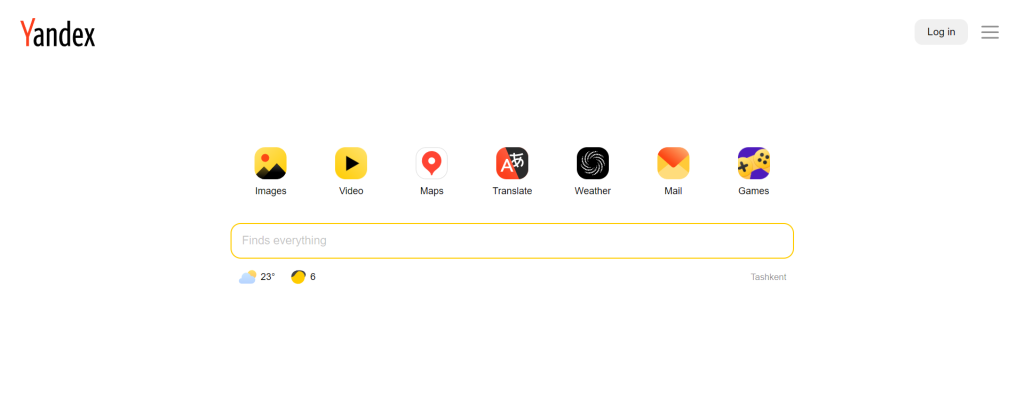
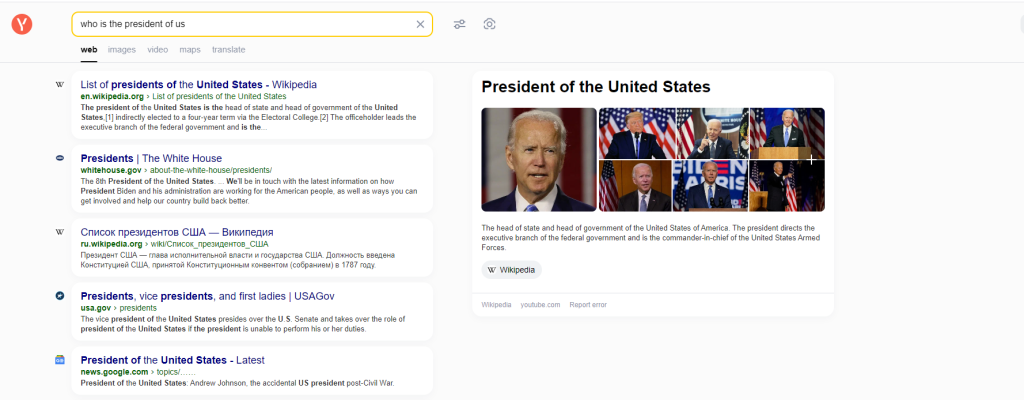
Yandex dominates the Russian market with a 68.36% market share. It comes with a wide range of services beyond search, such as video, maps, mail, and images. It’s a strong Google contender, particularly for Russian-speaking users in Russia, Belarus, Kazakhstan, Turkey, and Ukraine.
What Makes Yandex Great?
- Offers many of the same features as Google with a clean, uncluttered look
- Filters out adult content for a safer browsing experience
- Reduces loading time for users with slower connections
- Yandex is adept at understanding Russian inflections and synonyms
- Includes services like Yandex.Maps, Yandex.Music, and Yandex.Money for a well-rounded user experience
22. Naver
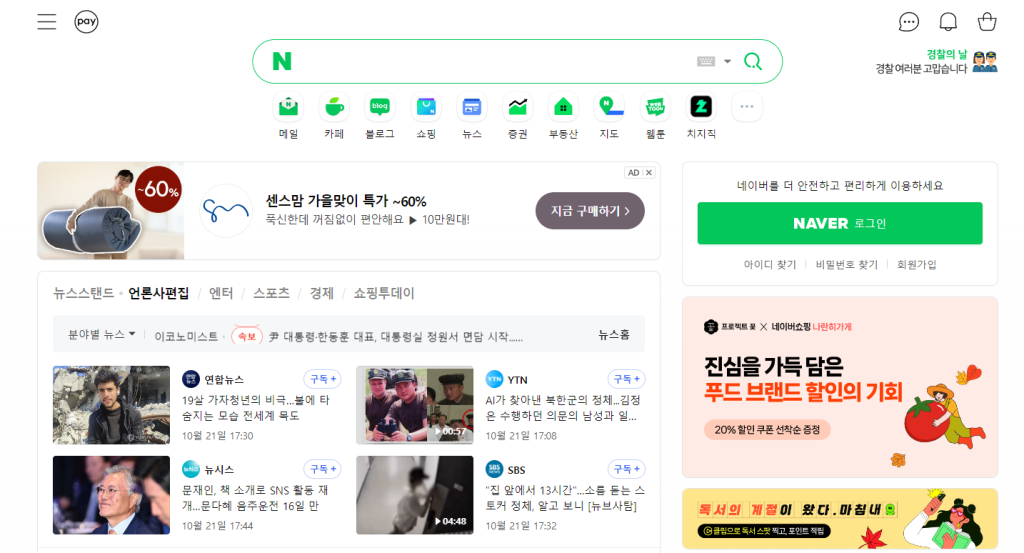
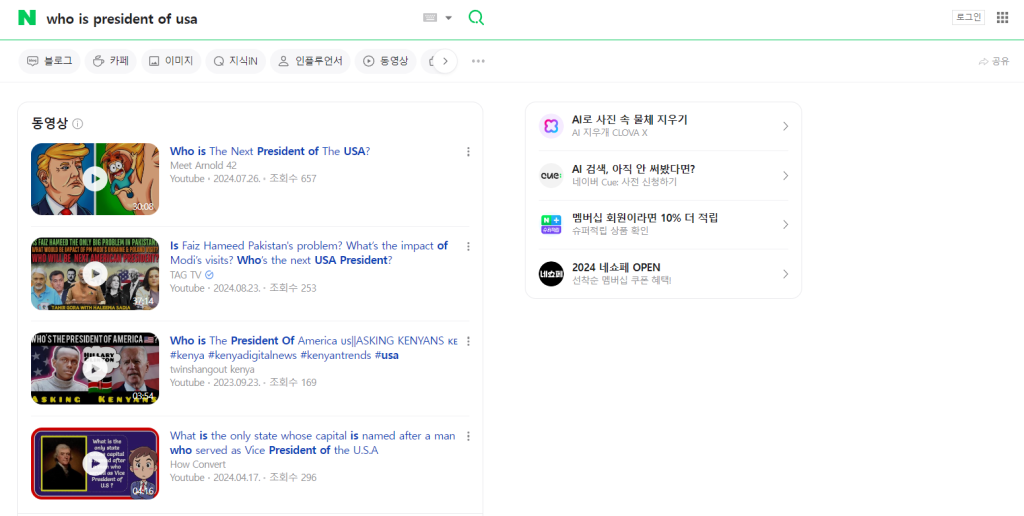
Naver holds a 34% market share in South Korea, offering a wide range of services, including news, blogs, music, and shopping. It also has a mobile app for convenient searching on the go.
Naver is deeply integrated into South Korean digital culture, with platforms like Naver Blog and Naver Cafe offering personal spaces and community engagement.
What Makes Naver Great?
- Combines search results with news, shopping, and social networking services
- Visually rich interface
- Tailored to the Korean market
23. MetaGer
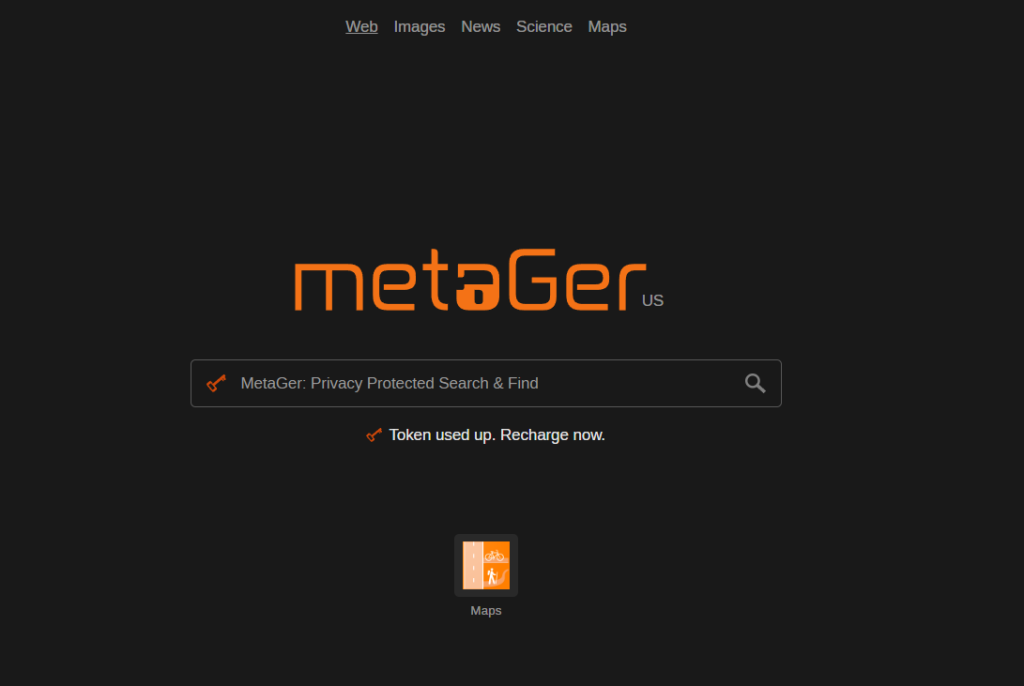
MetaGer is a German-based metasearch engine that sources results from over 50 search engines, prioritizing user privacy. It anonymizes search requests and offers a proxy service for private browsing.
MetaGer uses green energy to power its servers and is committed to data minimization and transparency.
What Makes MetaGer Great?
- No user tracking or profiling
- Run by a nonprofit, ensuring no commercial influence
- Integrated proxy ensures IP addresses and locations are not transmitted to external websites
26. Swisscows
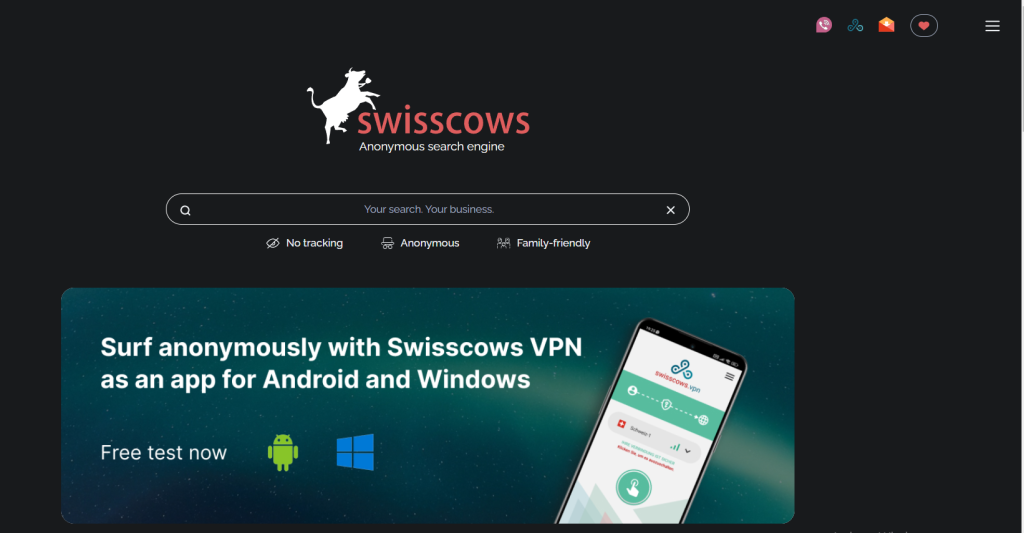
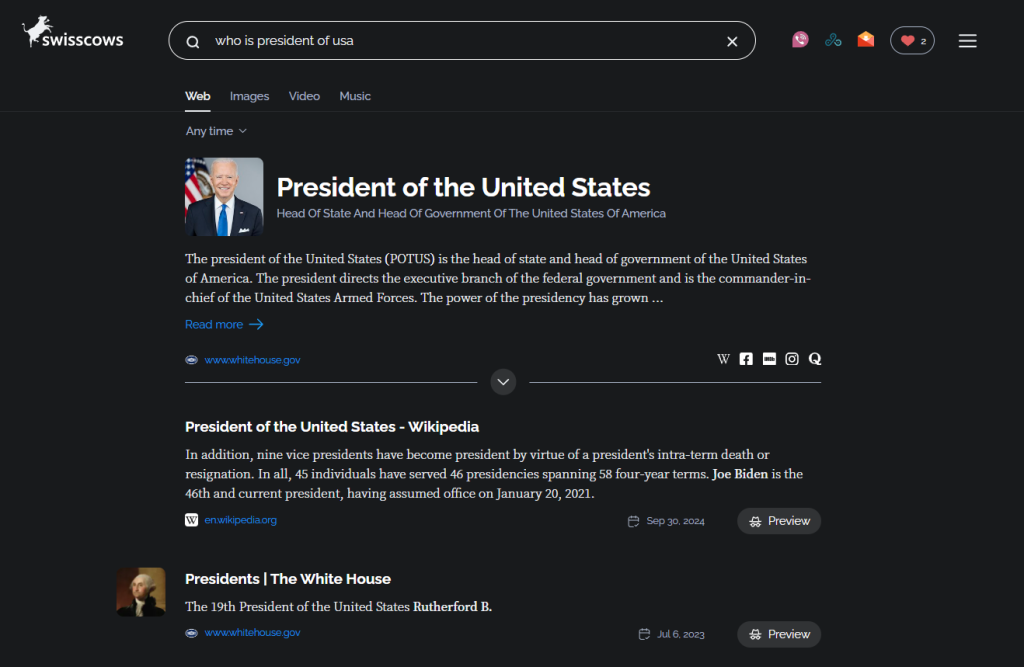
Swisscows, based in Switzerland, is a privacy-first search engine known for its family-friendly features. It guarantees anonymity, doesn’t track users, and blocks pornographic and inappropriate content.
Swisscows is powered by Bing for most searches but uses its own index for German-language queries. It also offers features like music search through SoundCloud and an anonymous preview feature for secure browsing.
What Makes Swisscows Great?
- No data tracking
- AI-powered search results
- Filters out adult content
25. Baidu

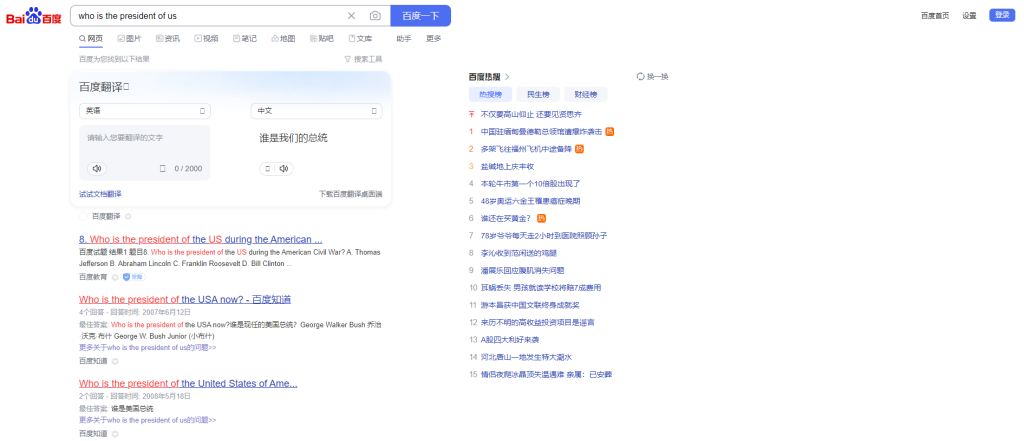
As of September 2024, Baidu controls over 66% of the Chinese market, offering a search engine designed specifically for Chinese-language users.
While its default language is Mandarin, making it less accessible for non-Chinese speakers, Baidu is the go-to platform for users in China.
Due to Chinese laws, certain websites and content may be censored.
What Makes Baidu Great?
- Optimized for Chinese-language searches
- Uses artificial intelligence to enhance search speed and accuracy
- Like Google, Baidu offers maps, news, videos, and a mobile app
- Excels in understanding the nuances of Chinese language and culture
- Offers additional features like Baidu Baike (encyclopedia), Baidu Wangpan (cloud storage), and Baidu Tieba (discussion forum)
Kids-Friendly Google Alternative
26. Kiddle
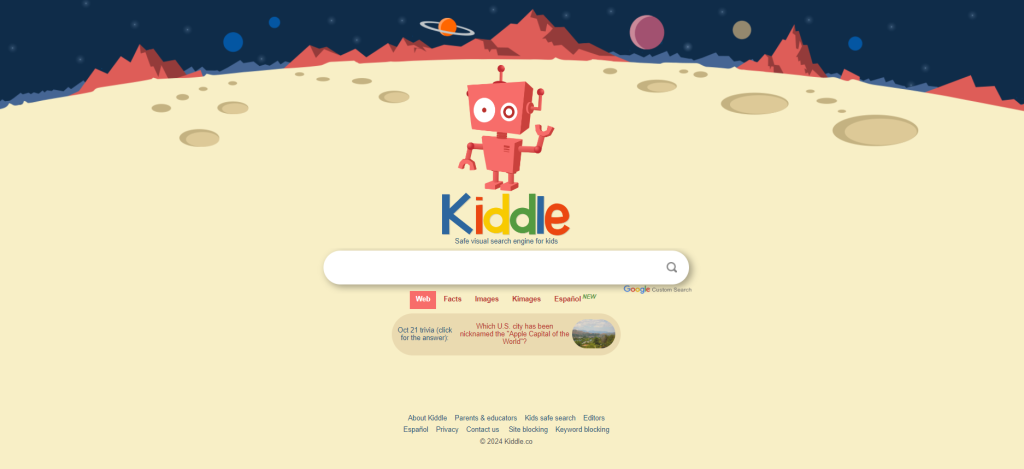
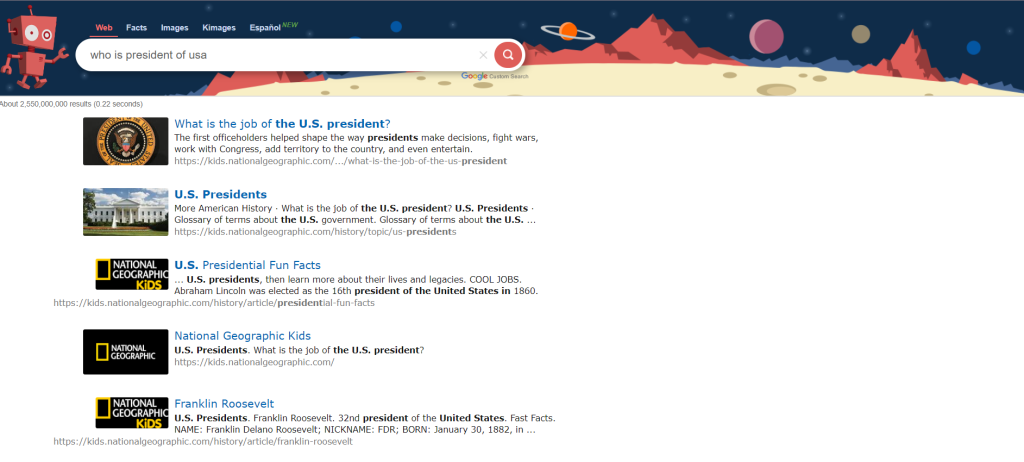
Kiddle is a children-friendly search engine powered by Google Safe Search, designed to ensure safe and age-appropriate content.
Its visually engaging interface and strict content filtering make it ideal for kids’ online exploration.
What Makes Kiddle Great?
- Filters out adult content, displaying only safe, age-appropriate results
- Features large thumbnails and images to make search results easier for kids to understand
- The top results are manually reviewed by Kiddle editors for safety
- Emphasizes its focus on children with a unique .co domain
27. Wacky Safe
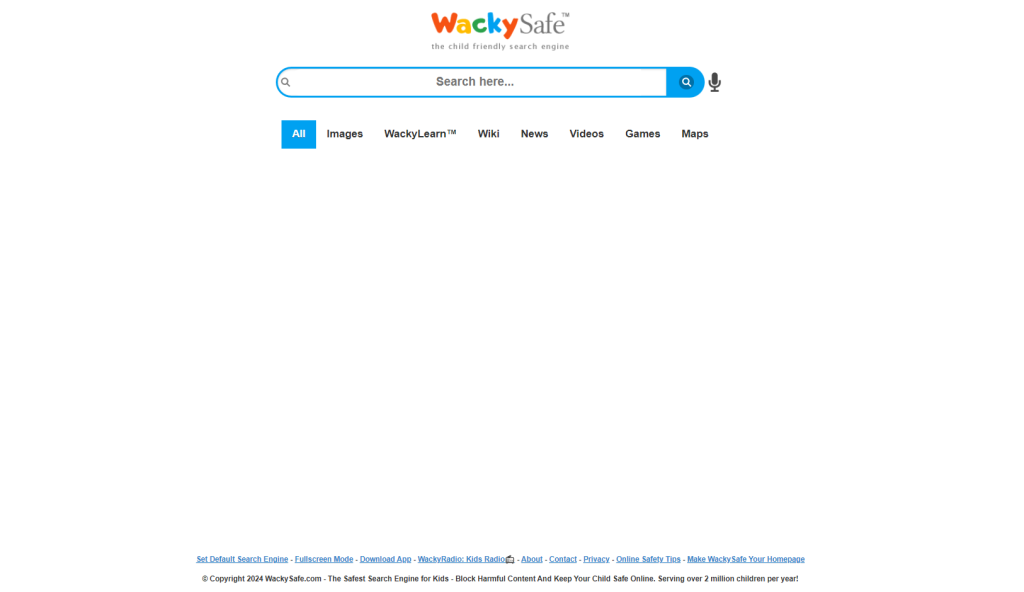
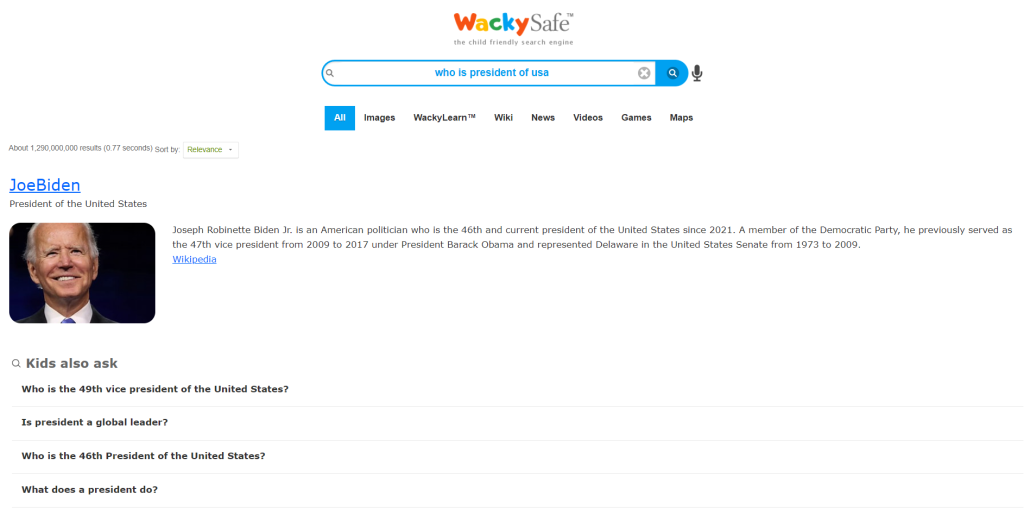
Wacky Safe provides a safe, curated search environment specifically for young internet users.
It tailors search results towards educational resources, games, and engaging activities to make learning fun and secure.
What Makes Wacky Safe Great?
- Ensures a secure browsing experience
- Combines safe searches with interactive, educational tools to enhance learning.
Academic Purpose Google Alternative
28. BASE
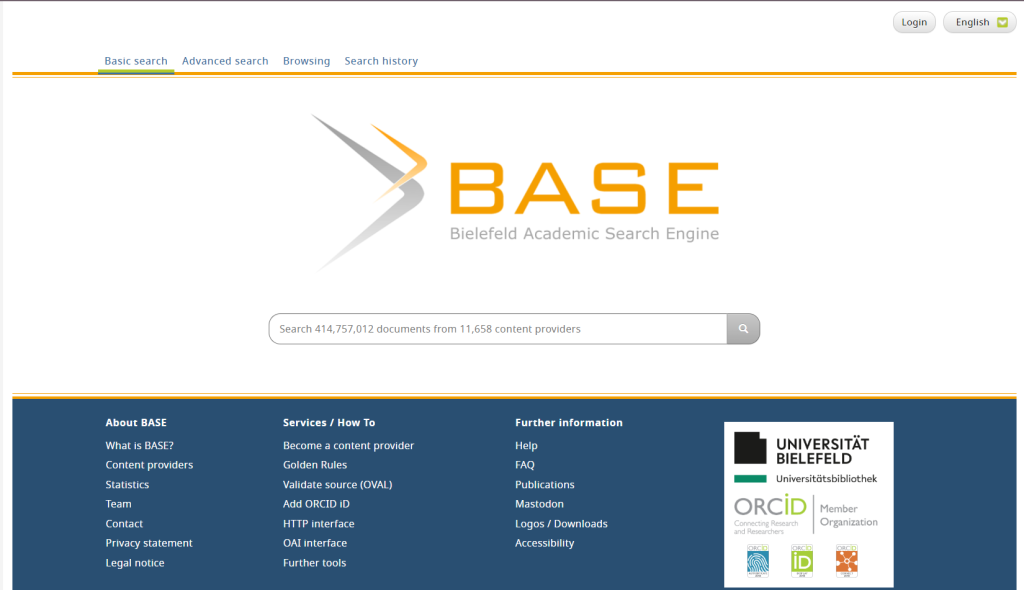
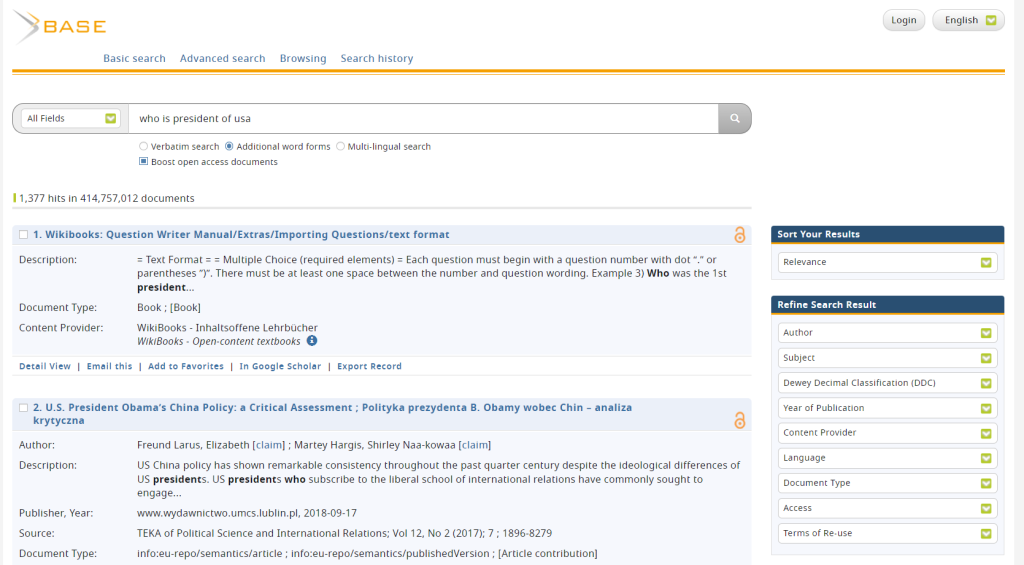
BASE is one of the largest academic search engines, operated by Bielefeld University Library in Germany.
It gives you access to over 150 million documents from more than 7,000 sources, with about 60% of the indexed content available for free.
With advanced filtering options, BASE is a highly customizable tool for students and researchers seeking comprehensive academic information.
What Makes BASE Great?
- Extensive academic and scholarly resources
- Supports content in multiple languages
- A significant portion of the indexed documents is freely available
- Advanced filters allow searches by document type, language, author, and more
29. Refseek
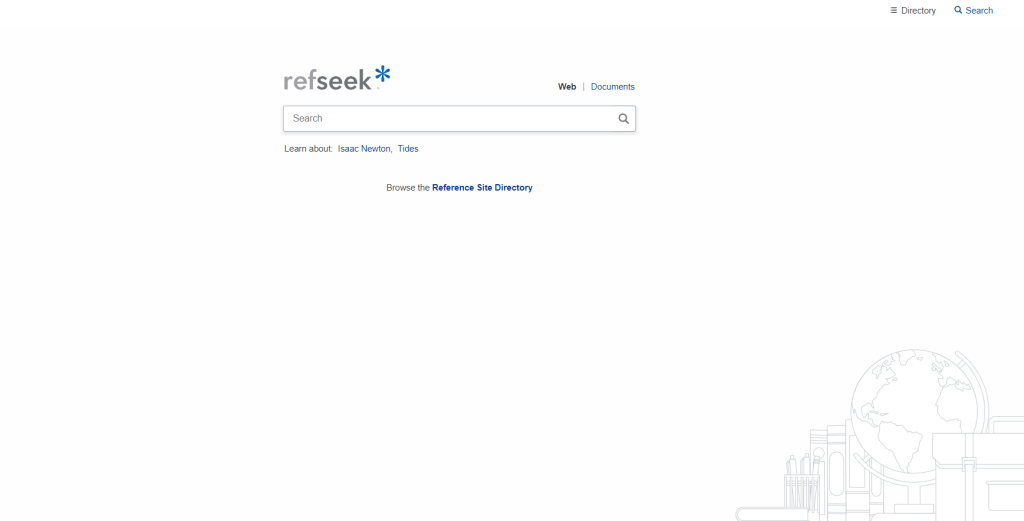
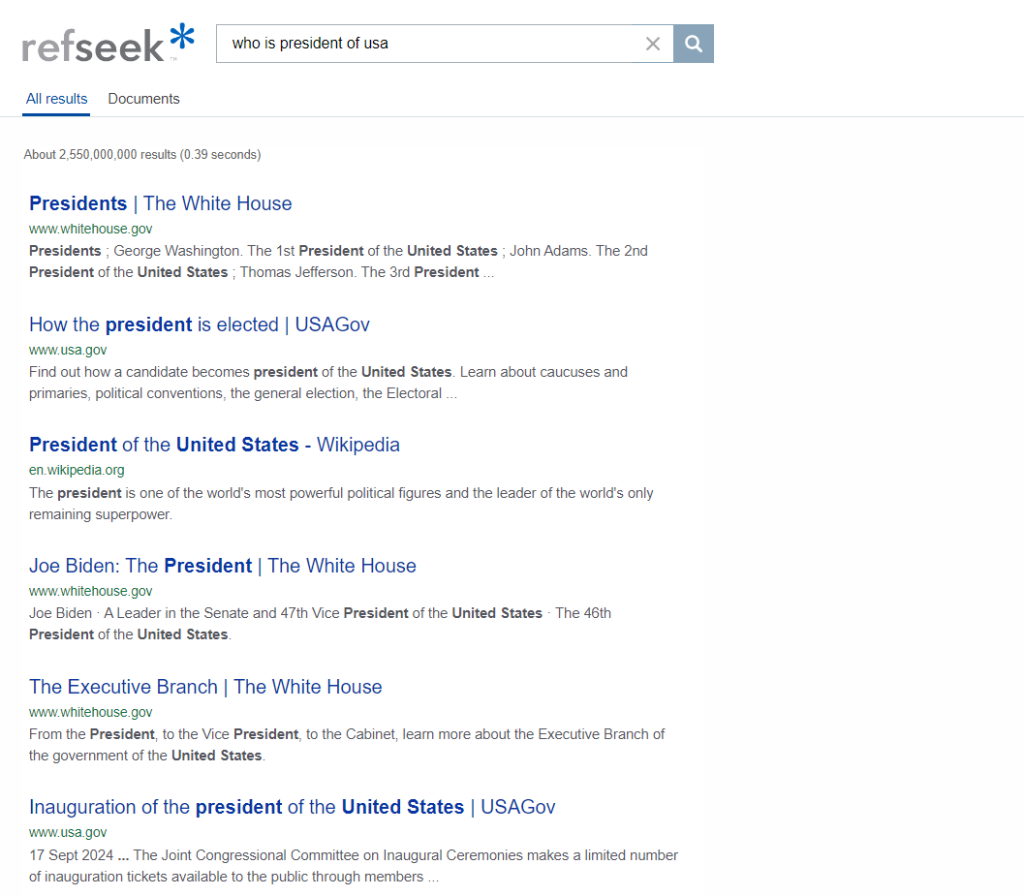
Refseek offers a straightforward search engine designed to make academic information easily accessible, eliminating the clutter of commercial links.
What Makes Refseek Great?
- No commercial ads
- Includes results from universities, databases, and the web
- Simplifies the search process by prioritizing academic content
- Clean interface
Other Google Alternatives
30. Wiki.com
Wiki.com is a unique alternative search engine that specializes in searching wikis for crowd-sourced content on a wide range of topics, from fandom to technology and books.
By filtering out non-Wiki sites, Wiki.com makes research more efficient and valuable for those looking for collaborative, unbiased information.
31. Seekr
Seekr takes a unique approach to search, focusing on news stories and using machine learning to rate results based on reliability and political ideology.
Each result is rated for its political lean (left, right, center) and reliability, helping users avoid clickbait or exaggerated headlines.
While Seekr is building its own web index, it currently uses Bing for map results and is not privacy-focused.
32. WolframAlpha
WolframAlpha is a computational search engine that provides direct answers to queries using algorithms and a structured knowledge base, rather than showing web links.
It’s quite popular among students, educators, and professionals in fields like mathematics, science, and technology.
33. BoardReader
BoardReader specializes in searching forums and message boards, with over 300 million posts indexed. It’s particularly useful for business-related content such as customer service, tech support, sales, and product reviews.
34. Dogpile
Dogpile is a metasearch engine that pulls results from multiple sources, including Bing and Yahoo, making it a time-saving option for users who want to avoid searching across multiple platforms.
The homepage features trending searches like “golf shoes,” “best VPN,” and “black Friday deals.”
Why Look For Search Engines Other Than Google?
- Privacy Protection: Search engines like DuckDuckGo and StartPage ensure that your search history isn’t tracked or stored
- Unique Features: Many search engines like SeekR and Brave offer features that are unique to them
- Diverse Perspectives: Using different search engines exposes you to a broader range of content and perspectives
- Support for Causes: Some search engines like Ecosia contribute to charitable initiatives
- Geographically Focused Results: Engines like Yandex and Baidu provide tailored experiences for specific regions or languages
- Unbiased Results: Many search engines offer more neutral search results, free from the personalized filters Google applies
FAQs
What are the best search engine alternatives besides Google?
- Best for Privacy: DuckDuckGo, StartPage, Brave
- Best for Academic Research: BASE, RefSeek
- Best AI-driven Results: Bing
- Best for Visual Content: Bing, Yandex.Images, Openverse
- Best for Unique Features: WolframAlpha, Seekr
- Best for Eco-Friendly Searches: Ecosia
What is the most secure search engine to use?
DuckDuckGo, Gibiru, Brave and Qwant are highly regarded for their emphasis on security and privacy.
Which search engine is the safest?
Brave and Presearch prioritize user privacy, making them very safe. For child safety, Swisscows and Kiddle are more appropriate as they filter out adult content.
What is the most unbiased search engine?
Brave and Gibiru are known to provide unbiased search results, making them excellent options for users seeking impartial information.
How can I switch to an alternative search engine?
Switching is easy. Go to your browser settings and change your default search engine to the alternative of your choice.
How do private search engines make money?
Private search engines often rely on contextual ads based on search terms, affiliate links, and donations, rather than tracking user data for personalized ads like Google.
What are the top privacy-focused search engines?
Leading privacy-focused search engines include DuckDuckGo, StartPage, Swisscows, and Searx, which are known for not tracking or storing user data.
Can using an alternative search engine improve my browsing experience?
Yes, using alternatives can offer diverse search results, fewer personalized ads, and even the chance to contribute to causes like environmental sustainability (e.g., Ecosia).
Which search engines are best for academic research?
BASE, RefSeek, and Wolframalpha are excellent for academic research, offering access to scholarly papers and resources ideal for research projects.
Are there any search engines that help with environmental causes?Yes, Ecosia and OceanHero contribute to environmental efforts. Ecosia plants trees with search revenue, while OceanHero helps remove plastic from the oceans.
Table of Contents
- Mainstream Google Alternatives
- AI-Driven Google Alternatives
- Privacy-Driven Google Alternatives
- Environment-Friendly and Charitable Alternatives
- Popular Google Alternatives in Different Countries
- Kids-Friendly Google Alternative
- Academic Purpose Google Alternative
- Other Google Alternatives
- Why Look For Search Engines Other Than Google?
- FAQs




